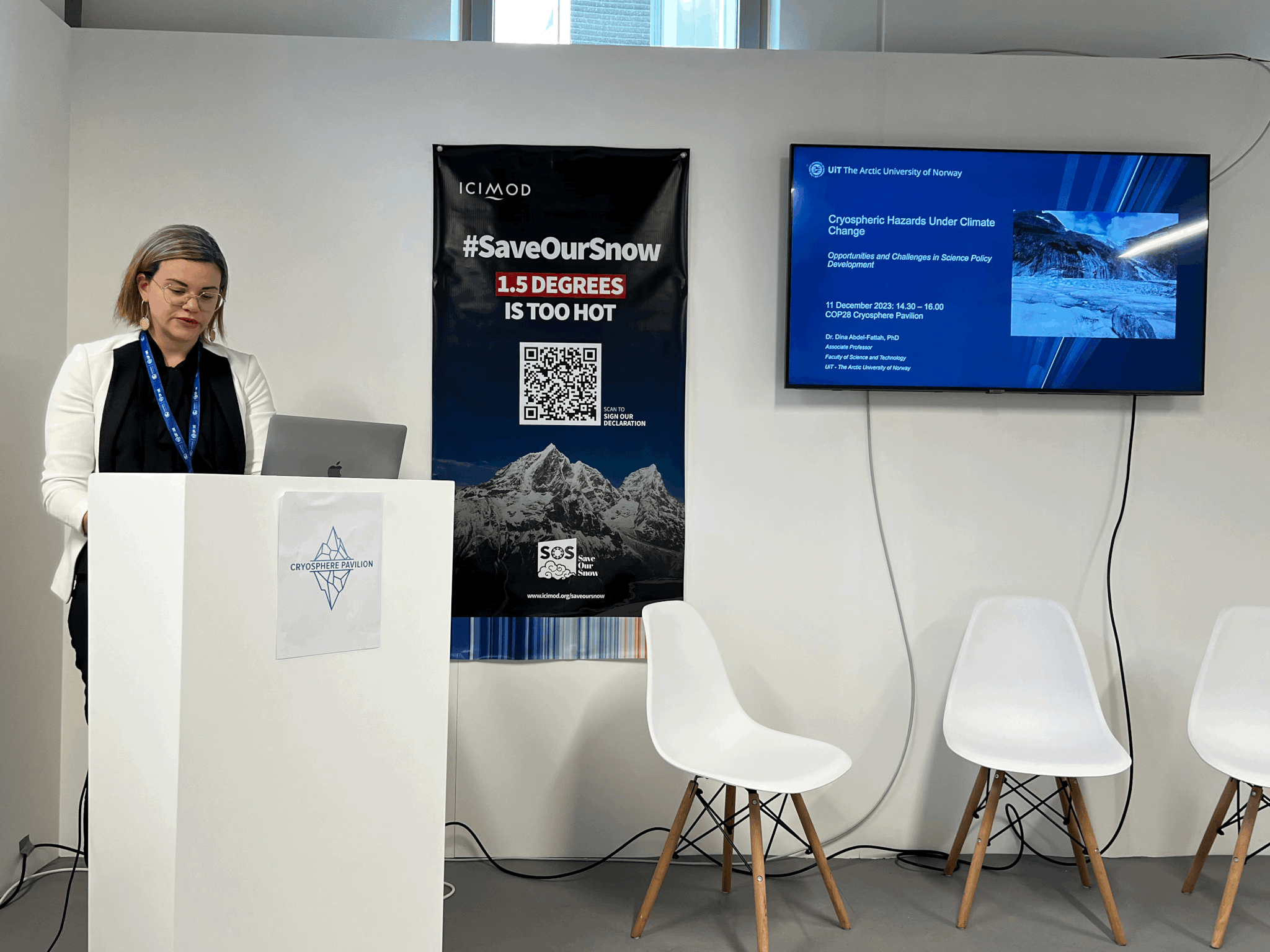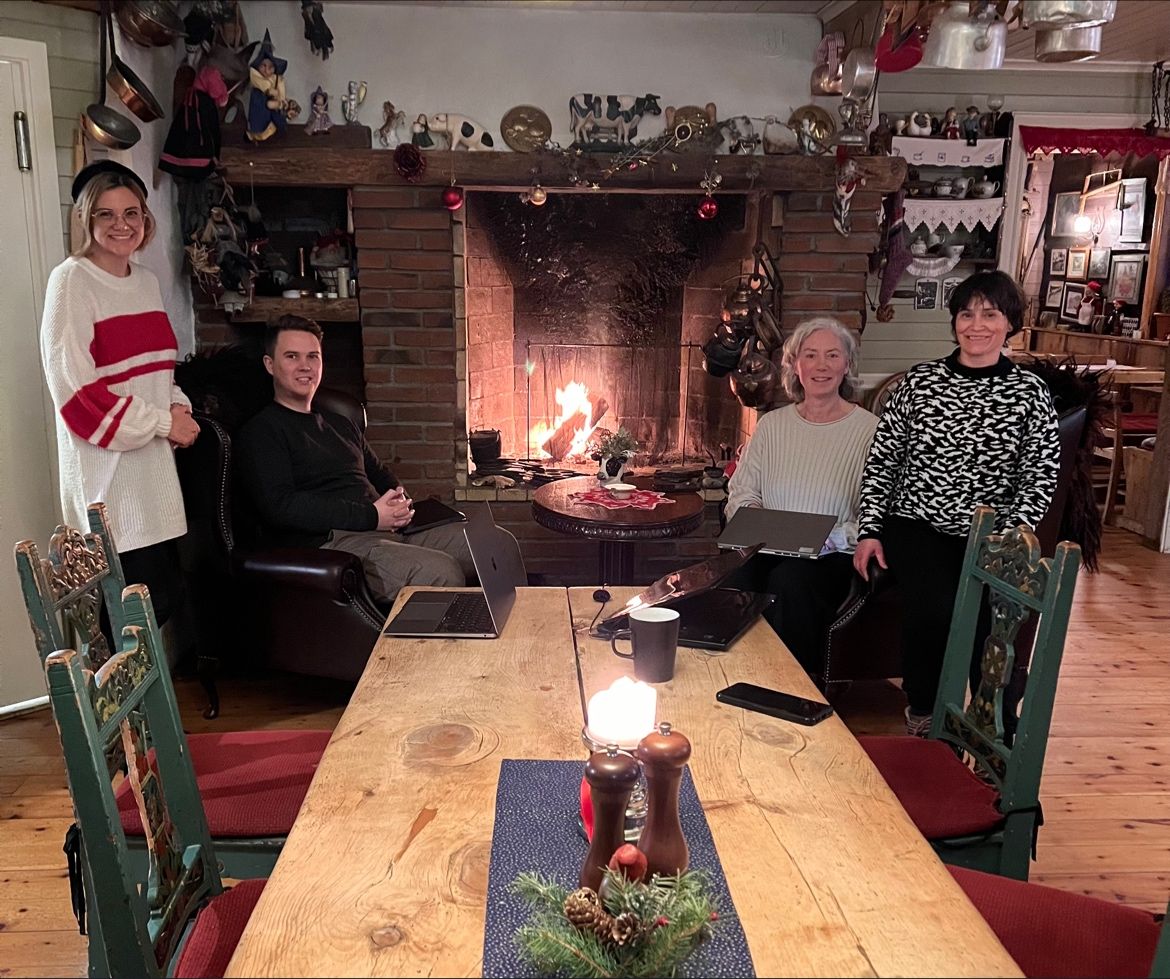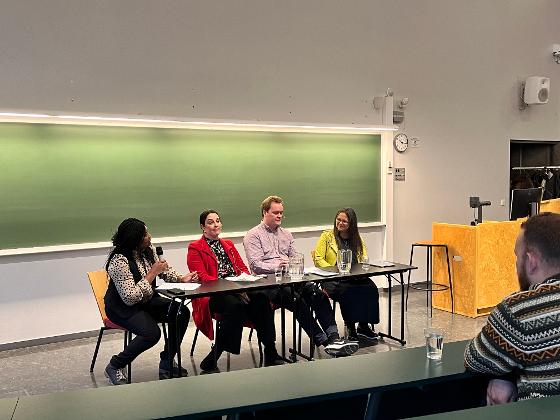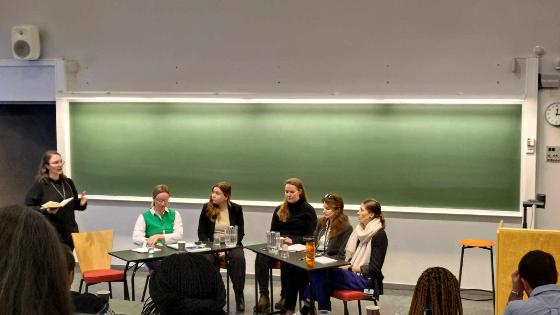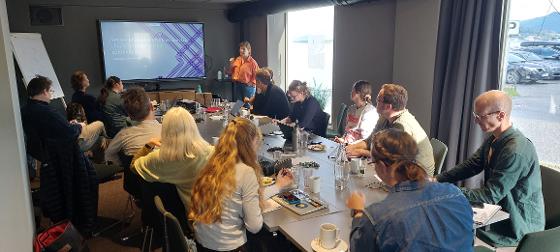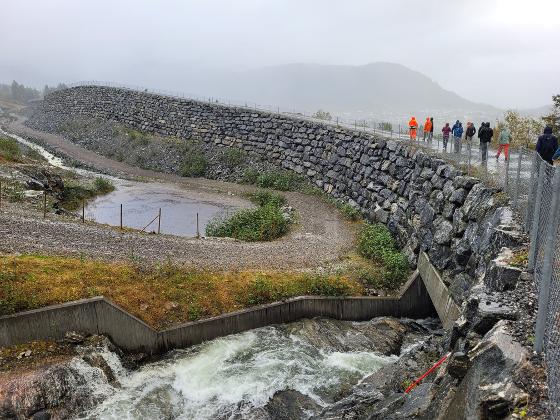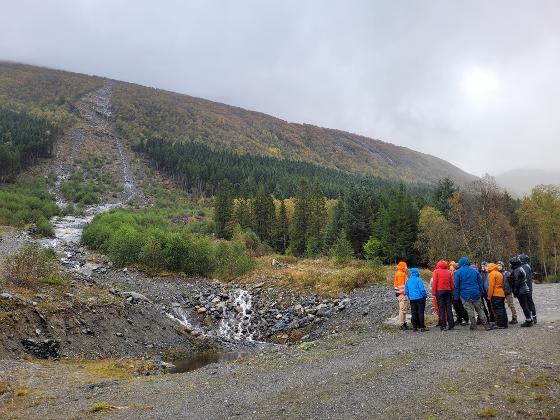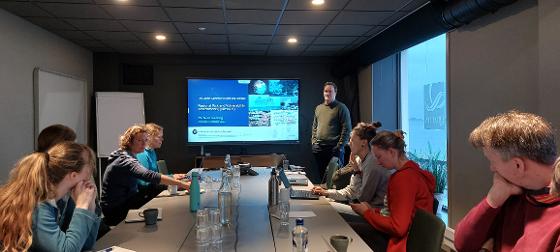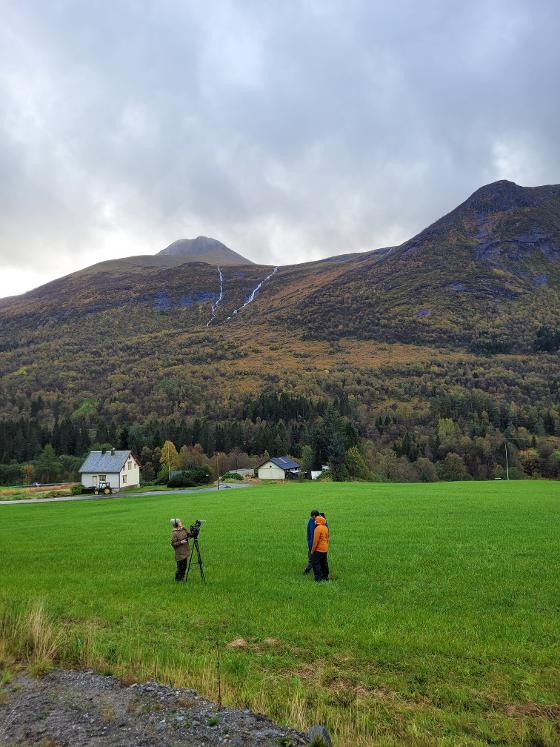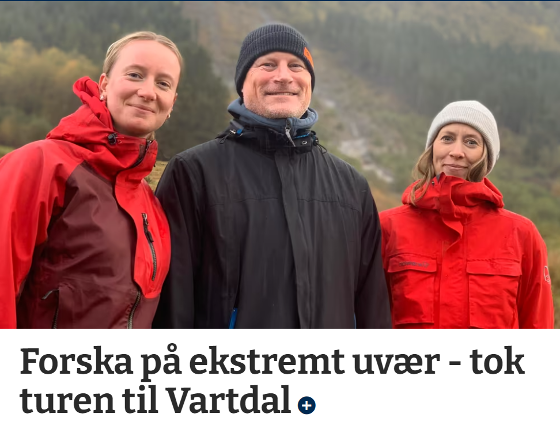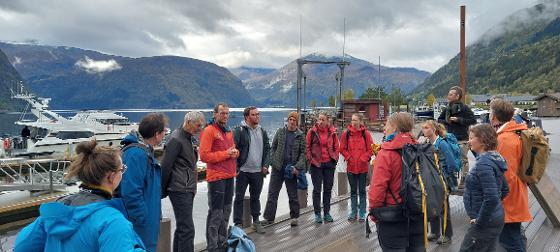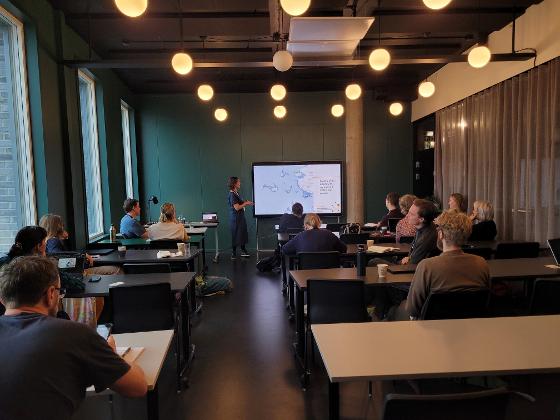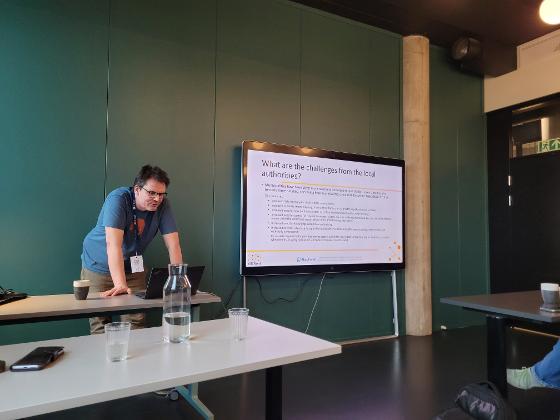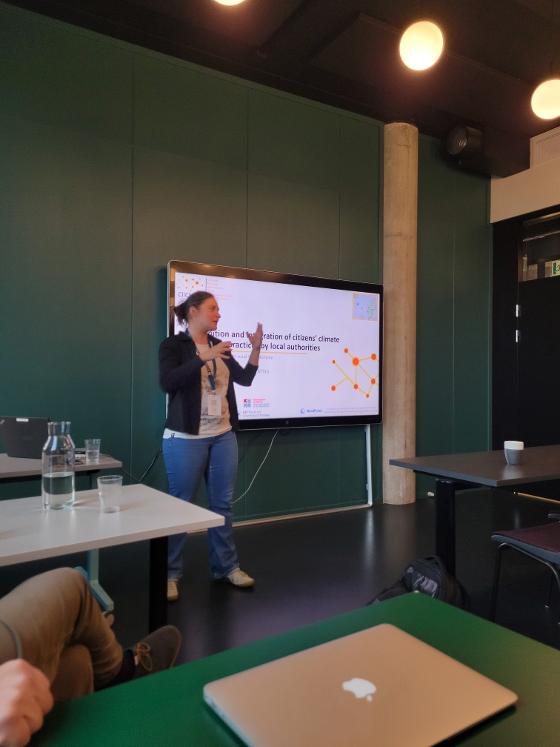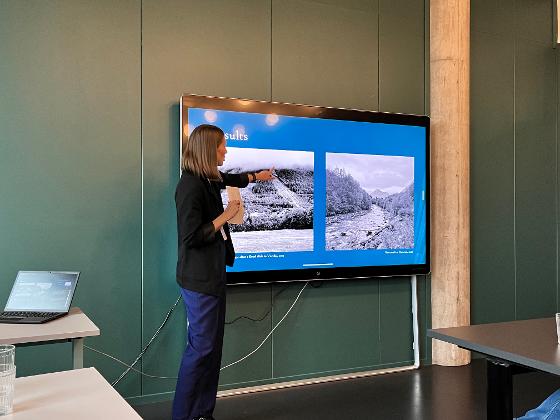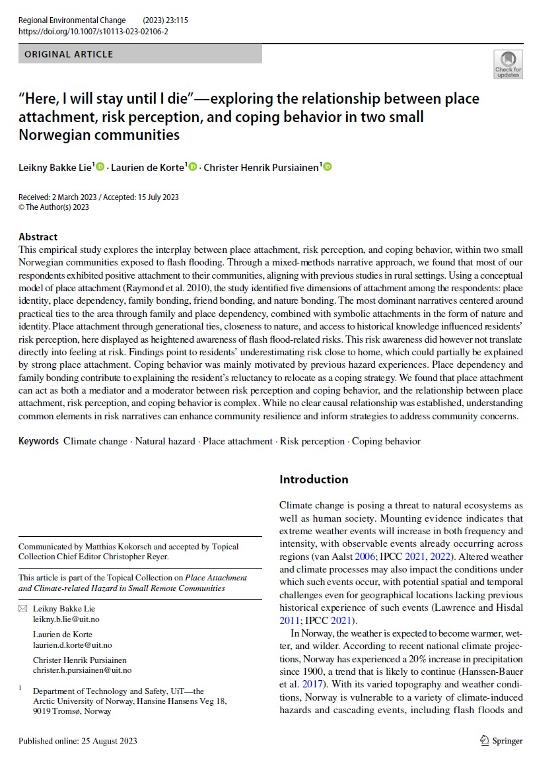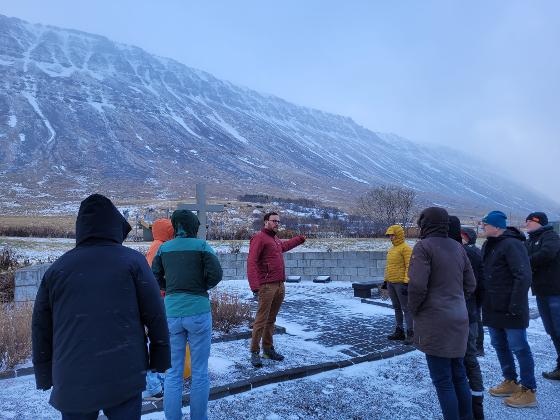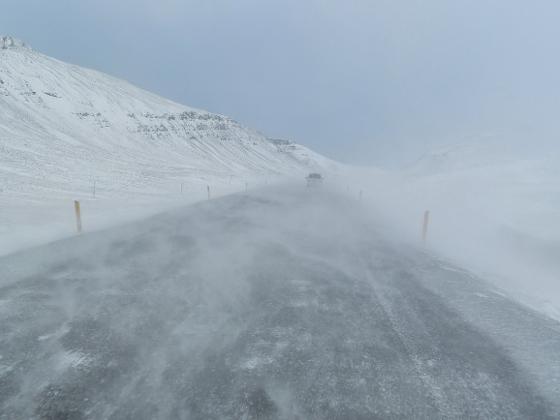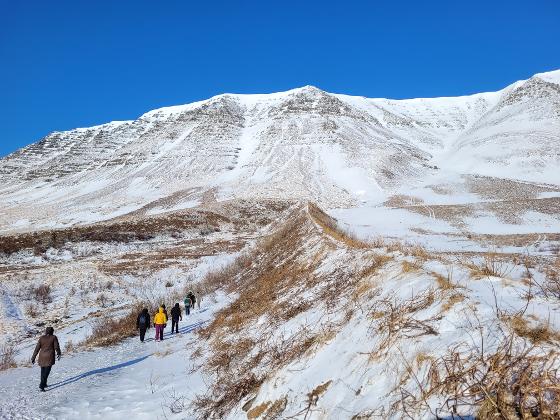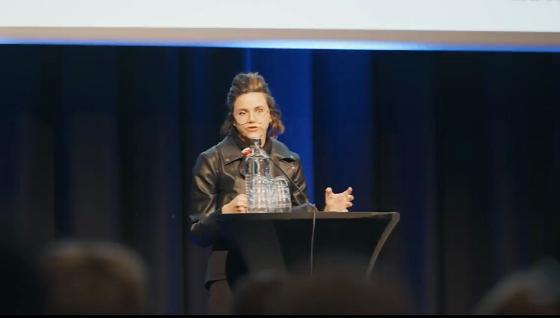The Special Issue Place Attachment and Climate-related Hazard in Small Remote Communities by The Climate Change Resilience in Small Communities in the Nordic Countries project (CliCNord) is finally out!
News archive

30.10.2025:
Experiences onboard the Arctic Future Pathfinders – One Ocean Expedition II course.
During August 2025, PhD candidate Laurien de Korte was part of the crew onboard the tall ship Statsraad Lehmkuhl, which attempted to sail through the Northwest Passage. During the journey, Laurien participated in the course “Arctic Future Pathfinders – A journey through the Northwest Passage” hosted by UiT- The Arctic University of Norway.
While sailing through Baffin Bay, it was decided to turn around, as the ice conditions make it unsafe to continue through the Northwest passage.

15.08.2025:
New paper: “Place Attachment and Climate-Related Hazards in Small Remote Communities in the Nordic Countries”
An Editorial synthesizing our project CliCNord were recently published under the title “Place Attachment and Climate-Related Hazards in Small Remote Communities in the Nordic Countries”.
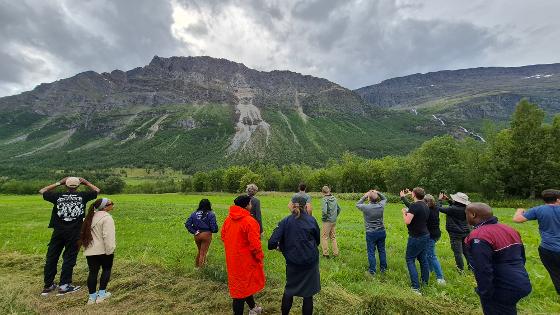
08.08.2025:
On the Frontline of Natural Hazards: A Field Excursion to Kåfjord
This week, the two research groups Climate Change Adaptation and Secure Societies teamed up for an exciting and educational field excursion to the natural hazard-prone area of Kåfjord.
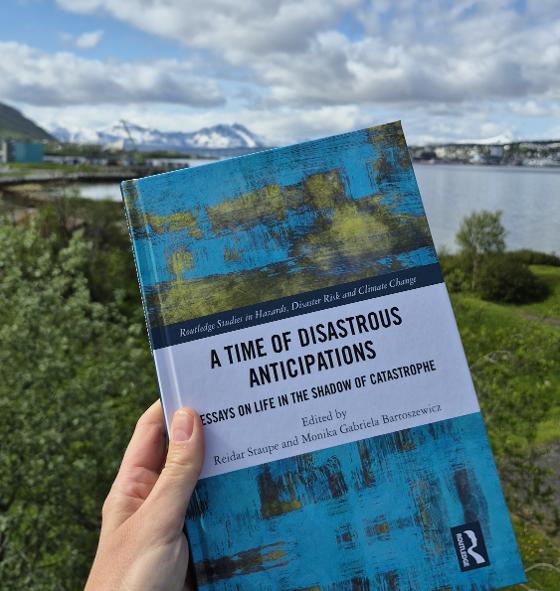
24.06.2025:
Book chapter on the anticipation of natural hazards
How do temporal expectations shape personal and collective experiences and influence our perspectives and responses in the realm of catastrophe and disaster risk management?
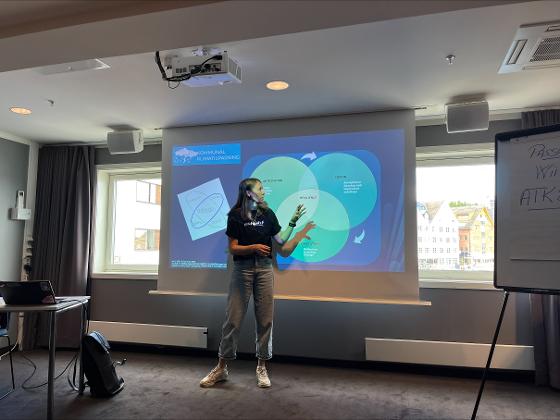
16.06.2025:
Climate change adaptation - Research meets Practice
I Front, the municipal network for climate adaptation, recently gathered in Tromsø for a two-day seminar, and we got the opportunity to present some of the most recent research on municipal climate adaptation in Norway for practitioners across Norway.

10.04.2025:
Beredt!-project Kick-off
The Beredt!-project is up and running, and after a few online meetings with research partners and stakeholders, we finally got the chance to meet up physically in Oslo for a two-day workshop.
31.01.2025:
CCA RG PhD candidate presents policy brief at Arctic Frontiers 2025: Beyond borders
On 27 January 2025, PhD candidate Stian K. Kleiven participated in Arctic Frontiers: Beyond boarders with a poster presentation of a policy brief titled “The vulnerability of fish transportation from climate change-induced hazards in Arctic Norway, Sweden, and Finland”.
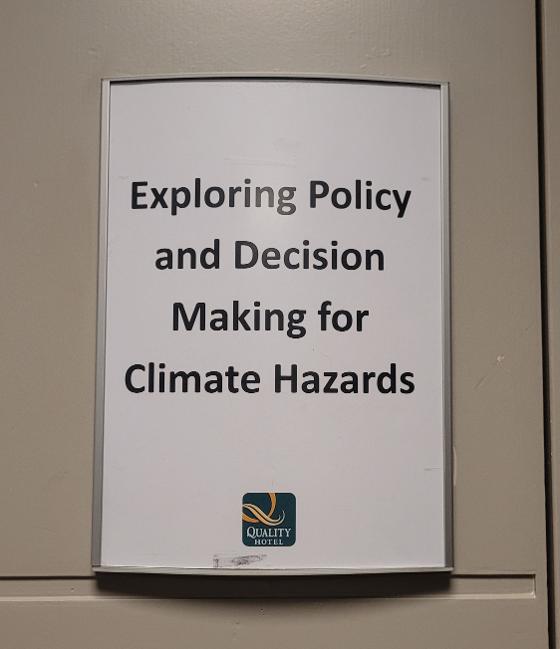
30.01.2025:
Arctic Frontiers 2025 summary
The annual Arctic Frontiers conference was held in Tromsø this week, and several of our research-group members have participated in various activities over these past few days.
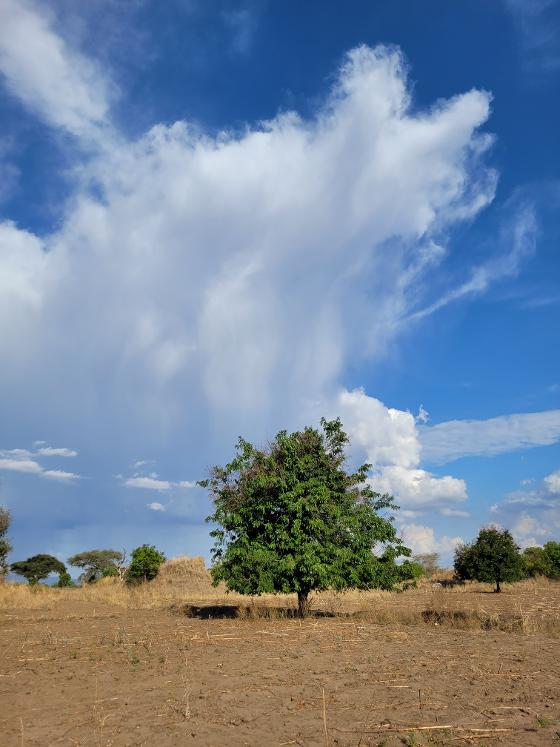
15.12.2024:
Climate change, impacts, and adaptation efforts in the context of Tanzania.
In October, Leikny Bakke Lie, one of our PhD students, was one of the lucky ones selected to attend the 2024 CATER Schools on Transdisciplinary Climate Risk and Action in Arusha, Tanzania. The primary aim of the CATER school is to support and enhance transdisciplinary cooperation for mutual learning across countries and disciplines. By inviting PhD students, early-career researchers, lecturers and practitioners, the school provides an excellent space for linking science and action, and for knowledge-sharing on topics relating to climate change and action.
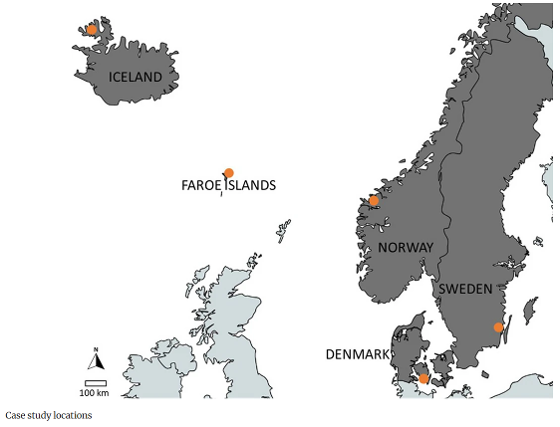
10.12.2024:
CliCNord-paper on the role of memory and place attachment
We can finally share the most recent publication from our CliCNord research project: "Years Matter: The Role of Memory and Place Attachment in Remote Nordic Areas Facing Natural Hazards." In this publication, we have explored some common themes across five of the cases involved in CliCNord, more specifically examining the role of memory and place attachment in these five Nordic communities that experience frequent natural hazard events.
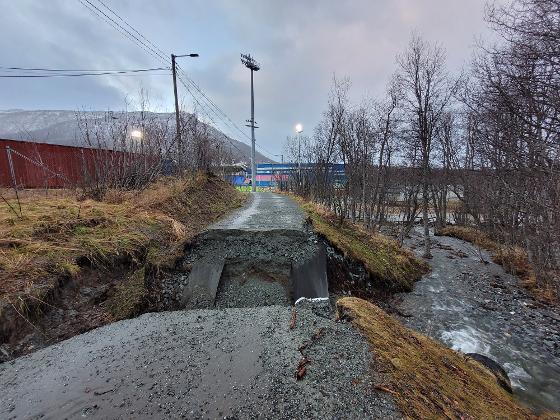
09.12.2024:
Reflecting on 2024 with CICERO
We recently had the pleasure of reflecting on the year 2024, summarized neatly in CICERO's monthly magazine and newsletter, Magasinet KLIMA.
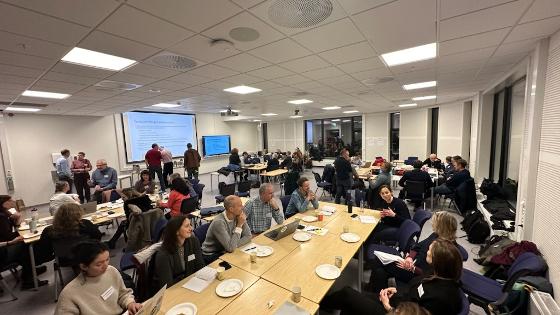
02.12.2024:
Workshop on "Form ICARP towards the next IPY"
The ICARP (International Conference on Arctic Research Planning) is a multi-year initiative (2022–2026) engaging Arctic researchers, Indigenous and local peoples, policymakers, and other stakeholders worldwide to identify the most pressing knowledge gaps and research priorities for the Arctic over the next decade.
The IPY (International Polar Year, 2032–33) is inspired by the research priorities established through the ICARP process, aiming to address unresolved knowledge gaps and foster global coordination for actionable outcomes.
Linking these two significant initiatives is crucial to provide a long-term perspective on the research topics that should remain at the forefront of the agenda.
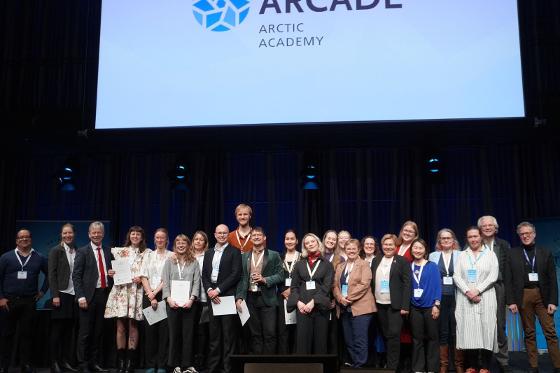
15.11.2024:
Finalized interdisciplinary PhD course ARCADE
In the last 10 months PhD candidate Laurien de Korte has participated in the The Arctic Academy for Social and Environmental Leadership (ARCADE) program.
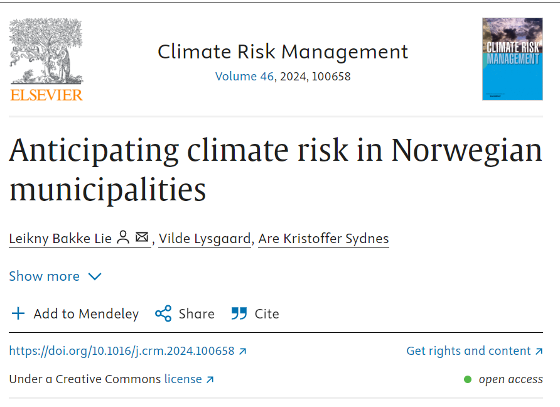
22.10.2024:
New paper on anticipating climate risk in Norwegian municipalities out now!
Our most recent paper from the Climate Change Adaptation research group is finally published, in the journal Climate Risk Management! A collaboration between Leikny Bakke Lie, Vilde Lysgaard, and Are K. Sydnes, we focus on the anticipation of climate risk in Norwegian municipalities through a systematic literature review combined with empirical findings from an Arctic context.
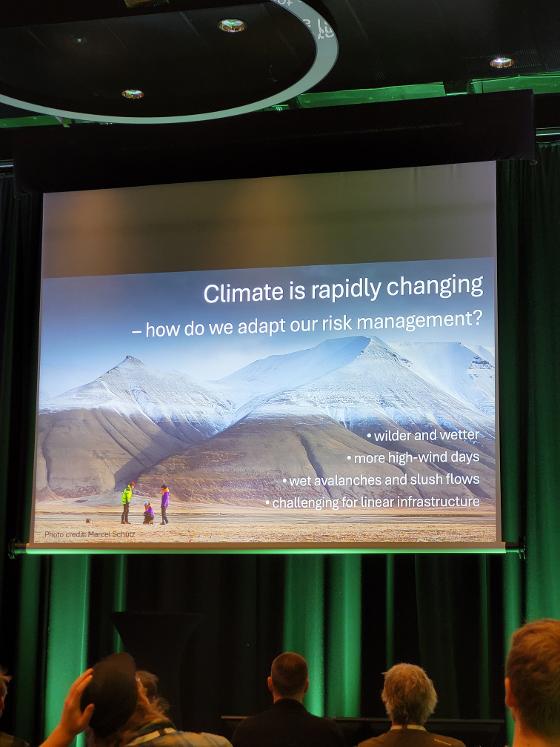
03.10.2024:
Snow and avalanche risk management in a changing climate - ISSW2024
Last week, Tromsø was host to the world’s largest conference on snow science – the International Snow Science Workshop, ISSW 2024. The idea of the conference is to uphold an interdisciplinary exchange of knowledge and experience, where researchers, practitioners, recreationalists, and other stakeholders meet over a jam-packed program containing all things snow and avalanche!
06.09.2024:
Exploring Climate Impact and Risk Management in the Italian Alps
A letter from the 3rd Summer School of The International Association for Engineering Geology (IAEG), in Aosta Valley, Italy.
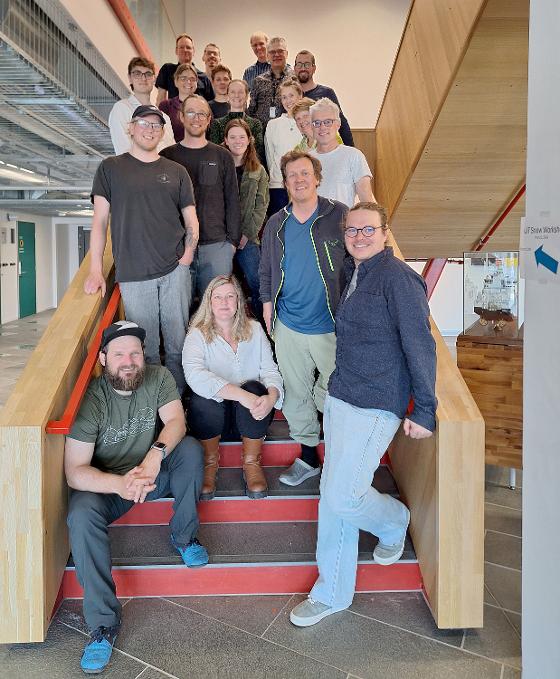
30.05.2024:
Interdisciplinarity in snow science - UiT workshop
There is a firm belief within our research group on the need for interdisciplinarity in approaching the challenges of climate change, also in terms of climate change adaptation to geohazards. We were thus thrilled to be invited to join an internal UiT workshop aiming to develop a joint, interdisciplinary center at UiT with the purpose of improving research and education on snow and landslides!
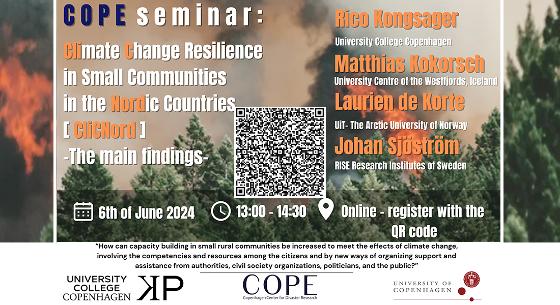
23.05.2024:
Sign up for COPE online seminar (06.06.24): Main findings from CliCNord!
COPE Seminar (06.06.2024): Climate Change Resilience in Small Communities in the Nordic Countries (CliCNord) - the main findings, with participation from our researcher Laurien de Korte.
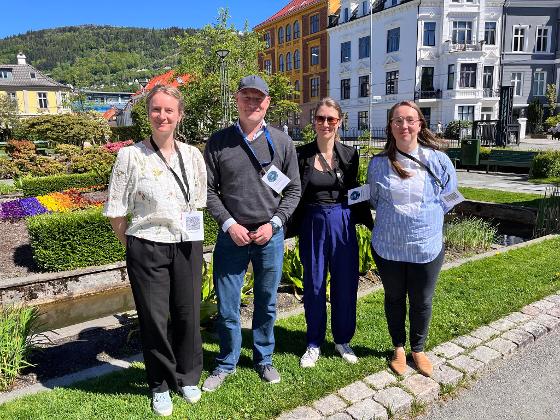
22.05.2024:
UiT presentations at the UiB conference "Human geographies of climate change adaptation"
Climate change adaptation in the Arctic meets Human geographies conference in Bergen.
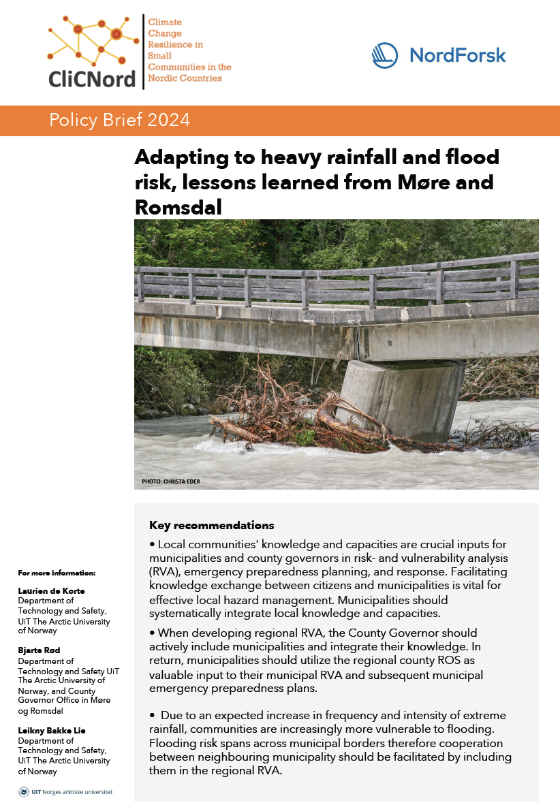
22.03.2024:
Policy brief: Adapting to heavy rainfall and flood risk, lessons learned from Møre and Romsdal
The brief summarizes key lessons learned from our three-year research project in Møre and Romsdal County.
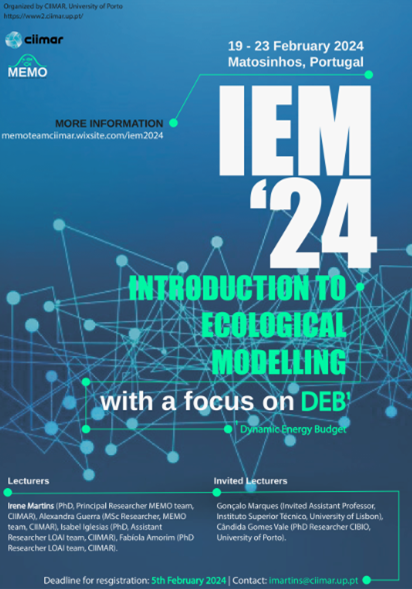
23.02.2024:
CCA RG members participate in the CIIMAR course: Introduction to Ecological Modelling
Between 19-23 February 2024, Stian K. Kleiven participated in the course Introduction to Ecological Modelling held by CIIMAR – the Interdisciplinary Centre of Marine and Environmental Research in Porto, Portugal. Dina Abdel-Fattah also participated in the course as a course observer, providing feedback to the course participants' models and work.
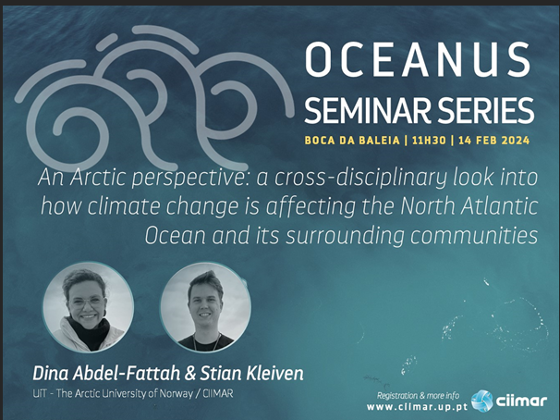
18.02.2024:
CCA RG members’ present at CIIMAR’s Oceanus seminar series: An Arctic perspective on the changing Atlantic Ocean
On 14 February 2024, Dina Abdel-Fattah and Stian K. Kleiven from the CCA RG held a seminar at CIIMAR – the Interdisciplinary Centre of Marine and Environmental Research in Porto, Portugal, as part of CIIMAR’s weekly Oceanus seminar series.
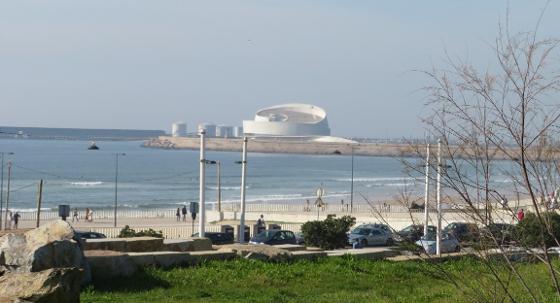
12.02.2024:
CCA RG members’ Erasmus+ research mobility exchange to Porto
This spring, two researchers from the CCA RG, Dina Abdel-Fattah and Stian K. Kleiven, are on a Erasmus+ mobility research exchange to CIIMAR – the Interdisciplinary Centre of Marine and Environmental Research in Porto, Portugal.

17.01.2024:
Frozen Oceans documentary series - linking science with cinematography
Last week our research team, including PhD candidate Leikny Bakke Lie and Laurien de Korte, met with Viktória Dénes and Richárd Viesz to talk about possible collaborations between science and cinematography. The two Hungarian film makers were interested in the research we have been doing for the past three years within the Nordforsk funded CliCNord project.
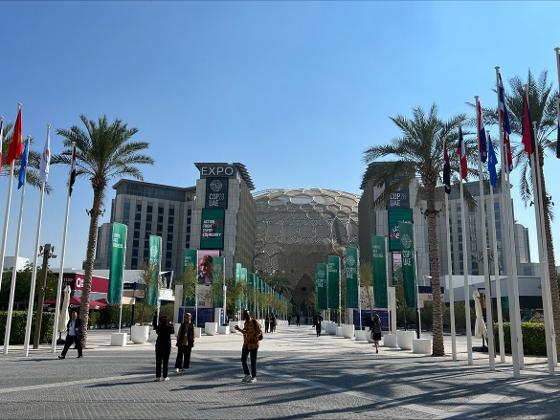
11.12.2023:
COP 28: International Cryosphere Climate Initiative Side Event on Societal Impacts of a Changing Cryosphere
Dina Abdel-Fattah, CCA RG leader, hosted a side event at COP 28 in Dubai, at the International Cryosphere Climate Initiative (ICCI)'s pavilion, on the various ways our cryopshere is changing and how it is impacting communities.
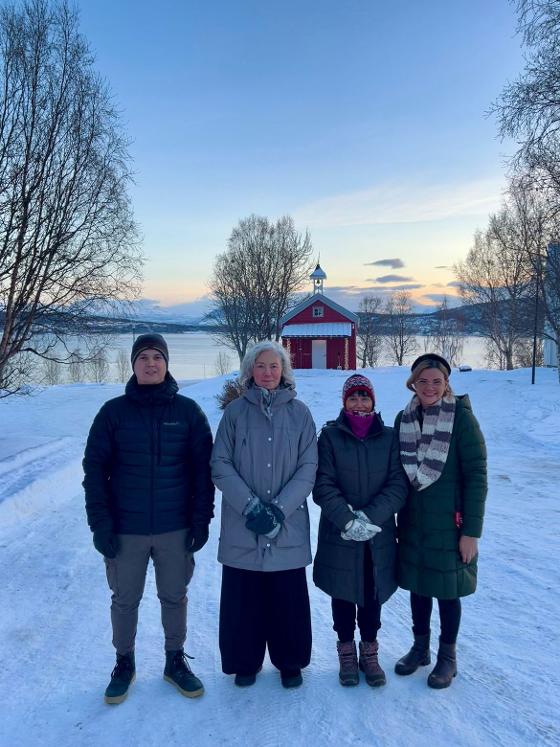
29.11.2023:
SSH Centre Climate Policy Book Chapter Writing Retreat in Harstad
CCA RG members - Dina Abdel-Fattah and Stian Kleiven - are a part of an author team developing a book chapter in the upcoming SSH Centre-funded European Union Climate Policy book, which is set to be published in 2024. As part of book chapter development, the author team visited Harstad for an intensive and fruitful writing retreat.
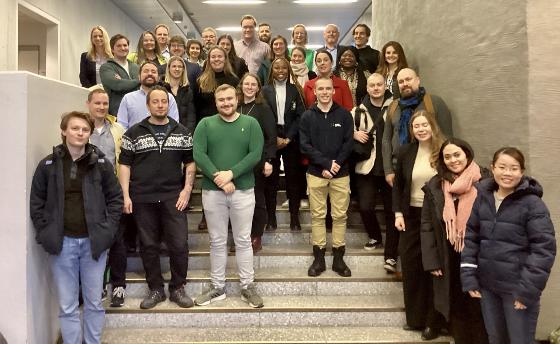
10.11.2023:
Highlights from the 6th Societal Security Workshop: Exploring Resilience
We are thrilled to share the exciting outcomes of the 6th Societal Security Workshop, a dynamic event dedicated to the critical theme of resilience. Organized by the Risk, Crisis, and Societal Security research group at UiT, the workshop brought together a diverse range of participants for a day of insightful discussions
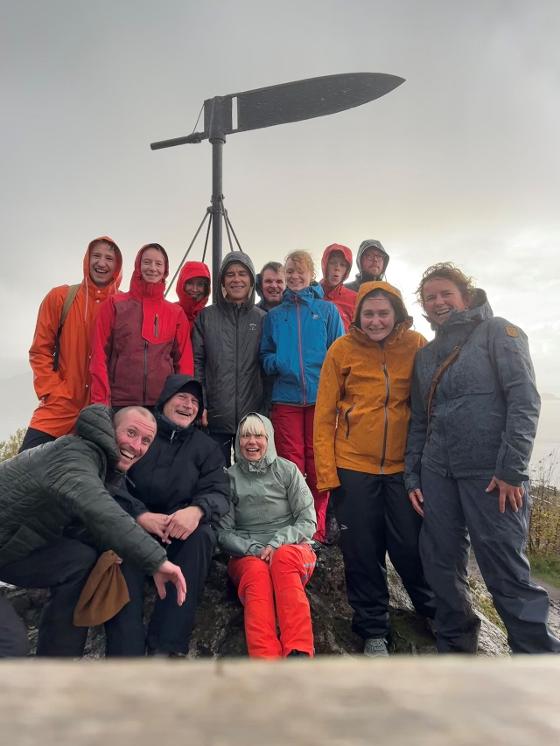
10.10.2023:
Latest CliCNord-update from Ålesund
Last week, members from the CliCNord-project gathered in Ålesund, Norway, for a week of meetings, workshops and fieldtrips. Updates on the status of the project as well as planning the next steps were the main points on the agenda.
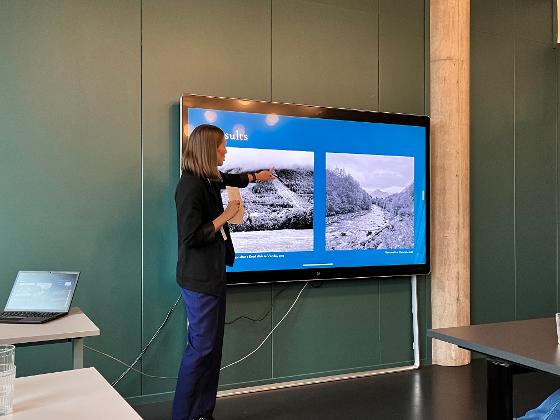
03.10.2023:
Presenting at NTNU conference Beyond crisis / Beyond normal
Laurien de Korte and Leikny Bakke Lie from our research group had the opportunity to present our latest paper on this years NTNU Energy Team Society Conference 2023, Beyond crisis/ Beyond Normal.
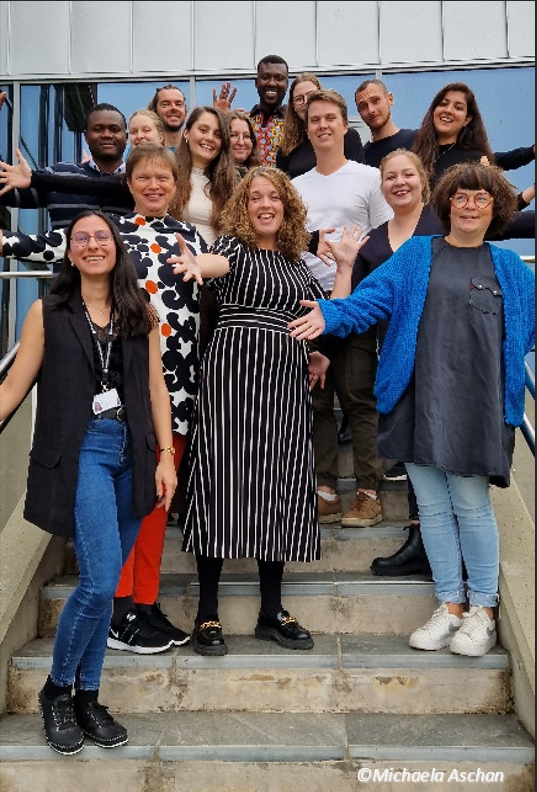
11.09.2023:
New PhD fellow on aquaculture and climate change joins the CCA RG
The CCA RG is pleased to announce its newest member, Stian K. Kleiven. Stian is a PhD fellow in the Faculty of Science and Technology and is also a member of the Changing Arctic Research School at UiT. Stian will be studying the impacts of climate change on aquaculture in Northern Norway, an under-researched but highly important topic, for academia and industry alike.
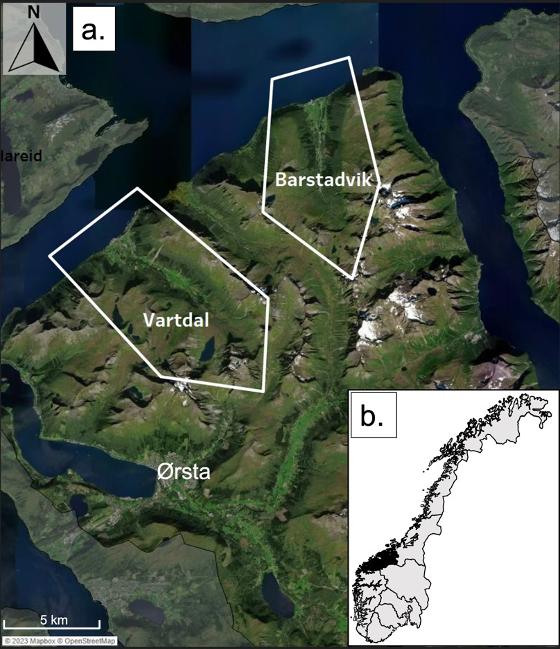
28.08.2023:
“Here, I will stay until I die” – CliCNord case study paper
Our most recent paper explores the concepts of place attachment, risk perception, and coping behavior in relation to the risk of climate change-induced natural hazards such as flash flood.
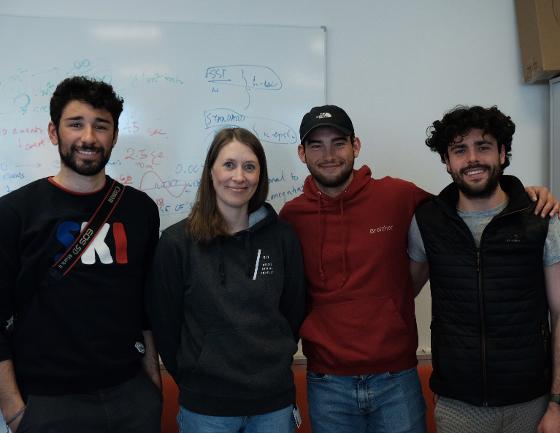
16.04.2023:
The impact of climate change on our mountains
Combining climate research with personal testimonies to increase awareness about the impacts of climate change on our mountains: recently, our research group had the opportunity to discuss climate change and local impacts on our mountain ranges in Northern Norway with three French students from Grenoble INP-UGA.
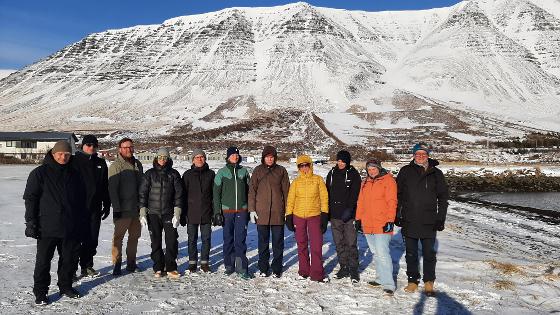
14.03.2023:
CliCNord project update from Iceland
The CliCNord research group recently travelled to Iceland for a research visit hosted by our colleagues from the University Centre of the Westfjords, Ísafjörður. On the agenda was discussions on progress and preliminary results, planning for the way ahead, as well as field visits and meeting with relevant stakeholders.
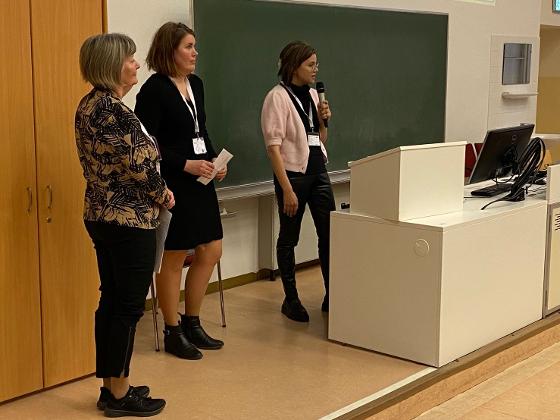
10.03.2023:
Spring 2023 conference presentations by UiT's Climate Change Adaptation RG
The work of our Climate Change Adaptation Research Group has been presented at several conferences these past few months.

03.03.2023:
Digital master program w/ a strong component on climate change and adaptation now offered at UiT
Are you interested in crisis management and contemporary issues affecting people or places, and want to learn more about how our society can be better prepared to tackle diverse and complex issues in the future?
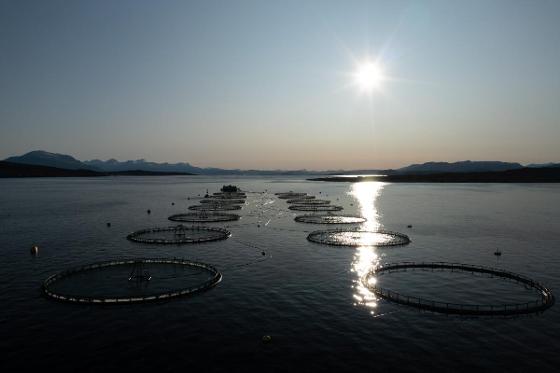
13.02.2023:
Aquaculture PhD-position available, read more and apply here!
The UiT Climate Change Adaptation Research Group is happy to announce that we have a new PhD position available, within the topics of climate change, marine ecosystems and aquaculture industry.
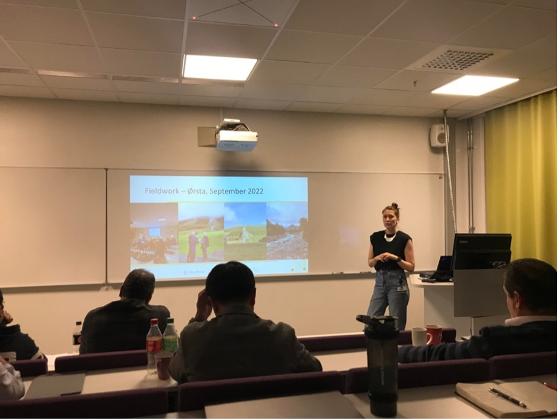
17.01.2023:
Presenting our latest research developments at an UTFORSK seminar
Yesterday a research seminar was held in conjunction with a research visit from Kyung Hee University, as part of an ongoing UTFORSK project between Kyung Hee University, Seoul and UiT- The Arctic University of Norway, Tromsø.
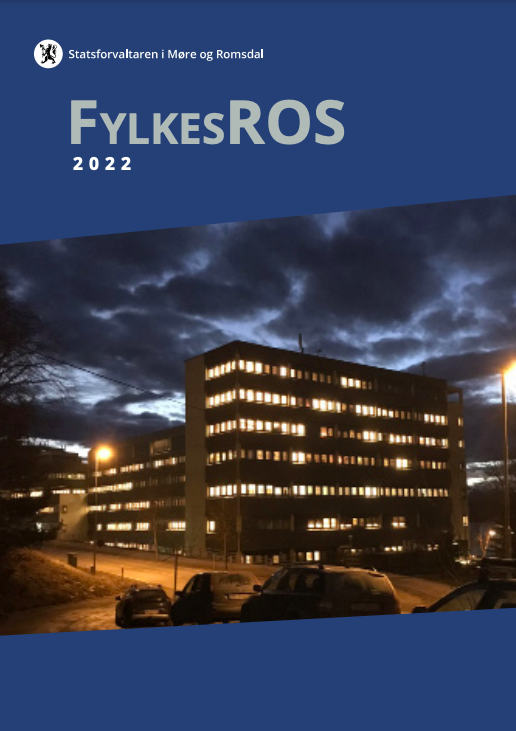
27.10.2022:
Published FylkesROS report of Møre and Romsdal county
CliCNord contribute to the county - Møre and Romsdal FylkesROS (Risk and Vulnerability Assessment) report.

28.09.2022:
UiT Climate Change Adaptation RG @ Forskningsdagene 2022!
Forskningsdagene 2022 (national research week) in Norway – the UiT Climate Change Adaptation research group presented their ongoing work in the CliCNord project.
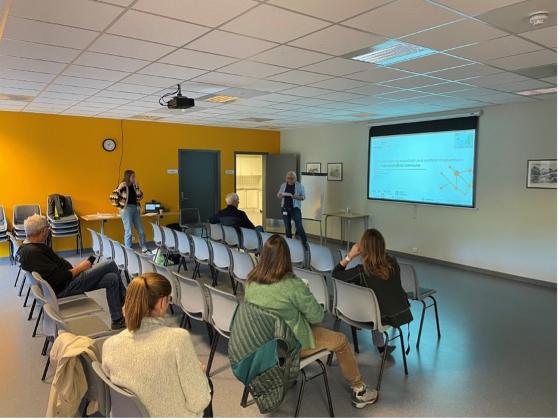
21.09.2022:
Update from field work week in Ørsta municipality
This week, researchers from the UiT Climate Change Adaptation research group are in Ørsta (County of Møre and Romsdal) for field work for our CliCNord project.
14.09.2022:
The next phase of the Norwegian case study on flash flood starts next week!
Researchers from the Climate Change Adaptation research group will travel to Ørsta for fieldwork on place attachment and capacity building in week 38.

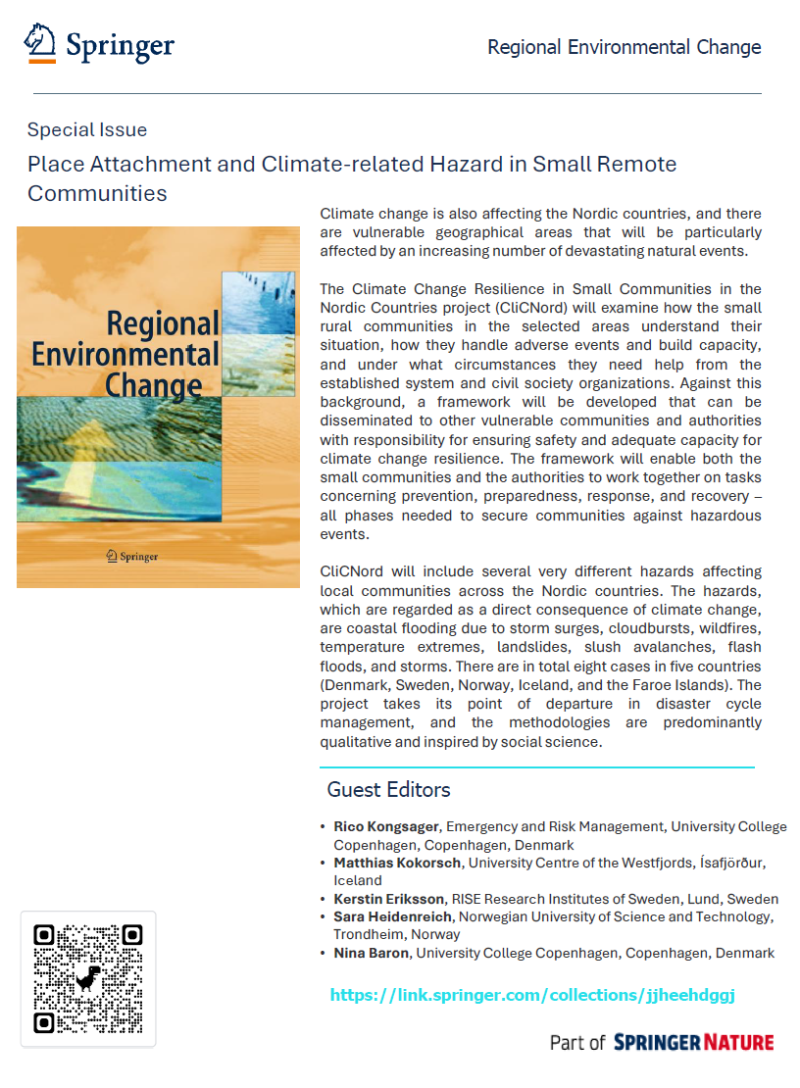
 Photo credits Andreas Altenburger Foto: xxx
Photo credits Andreas Altenburger Foto: xxx


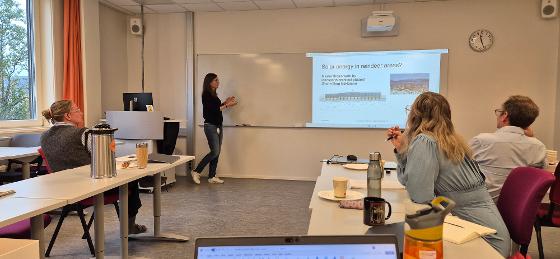
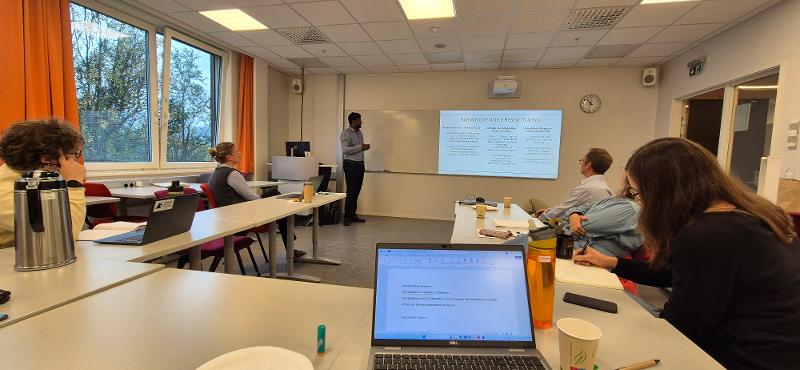


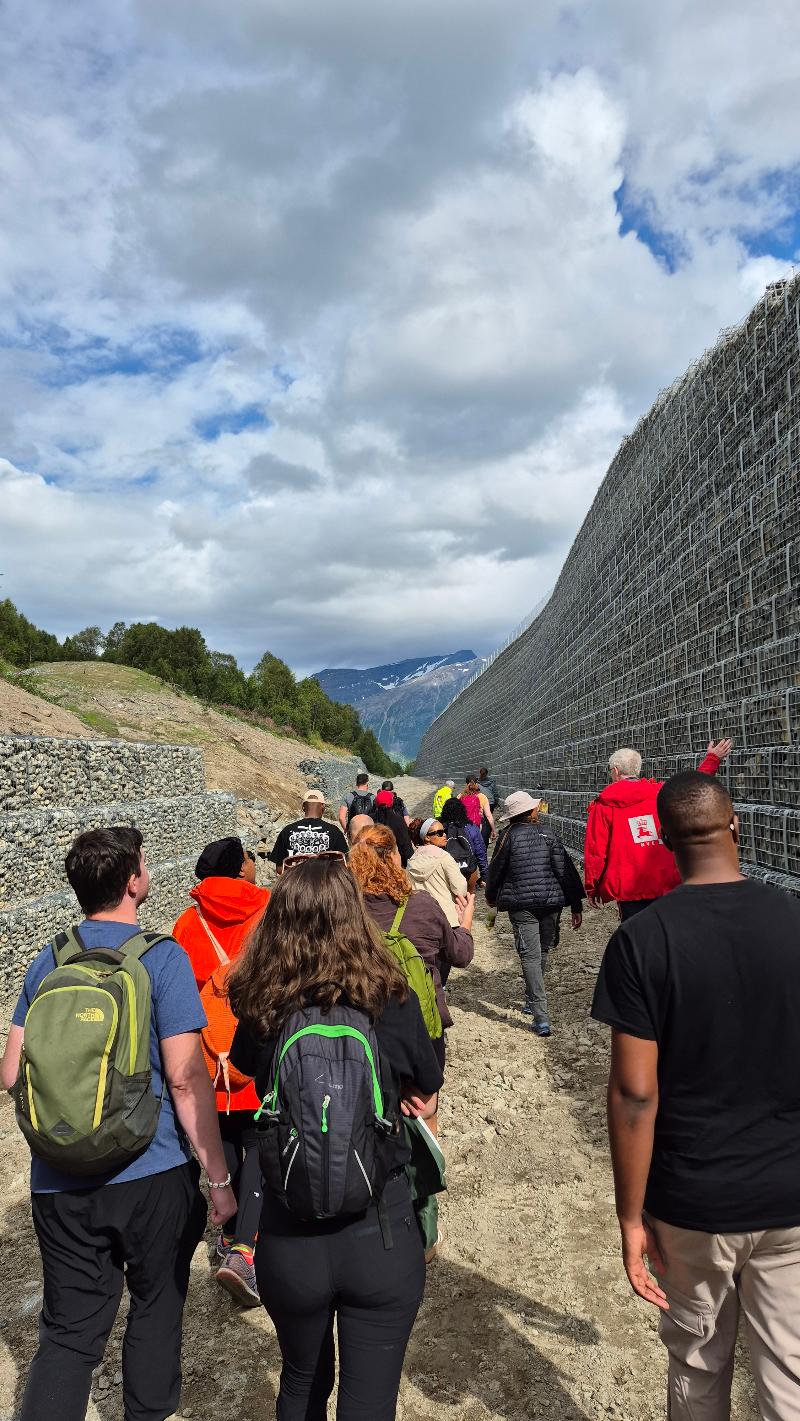
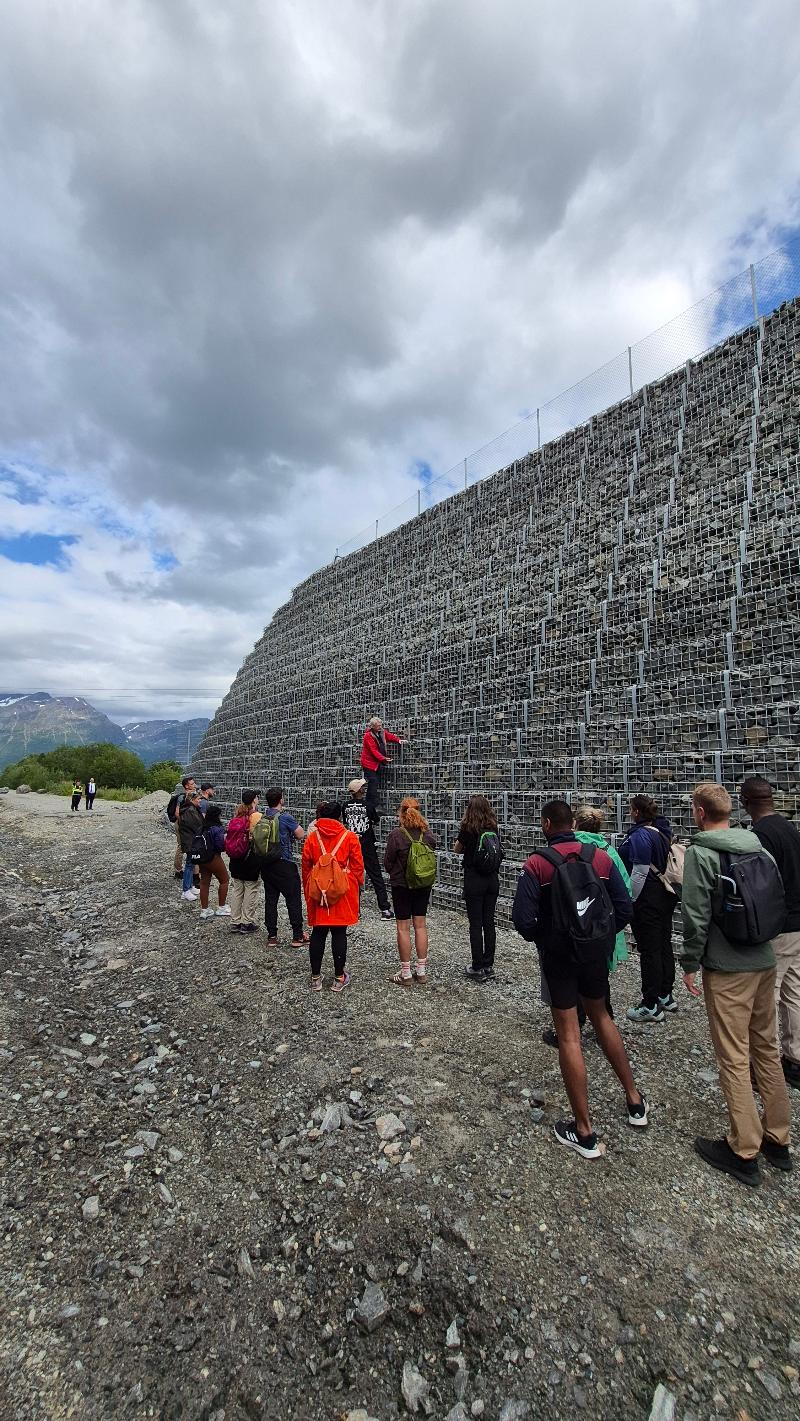
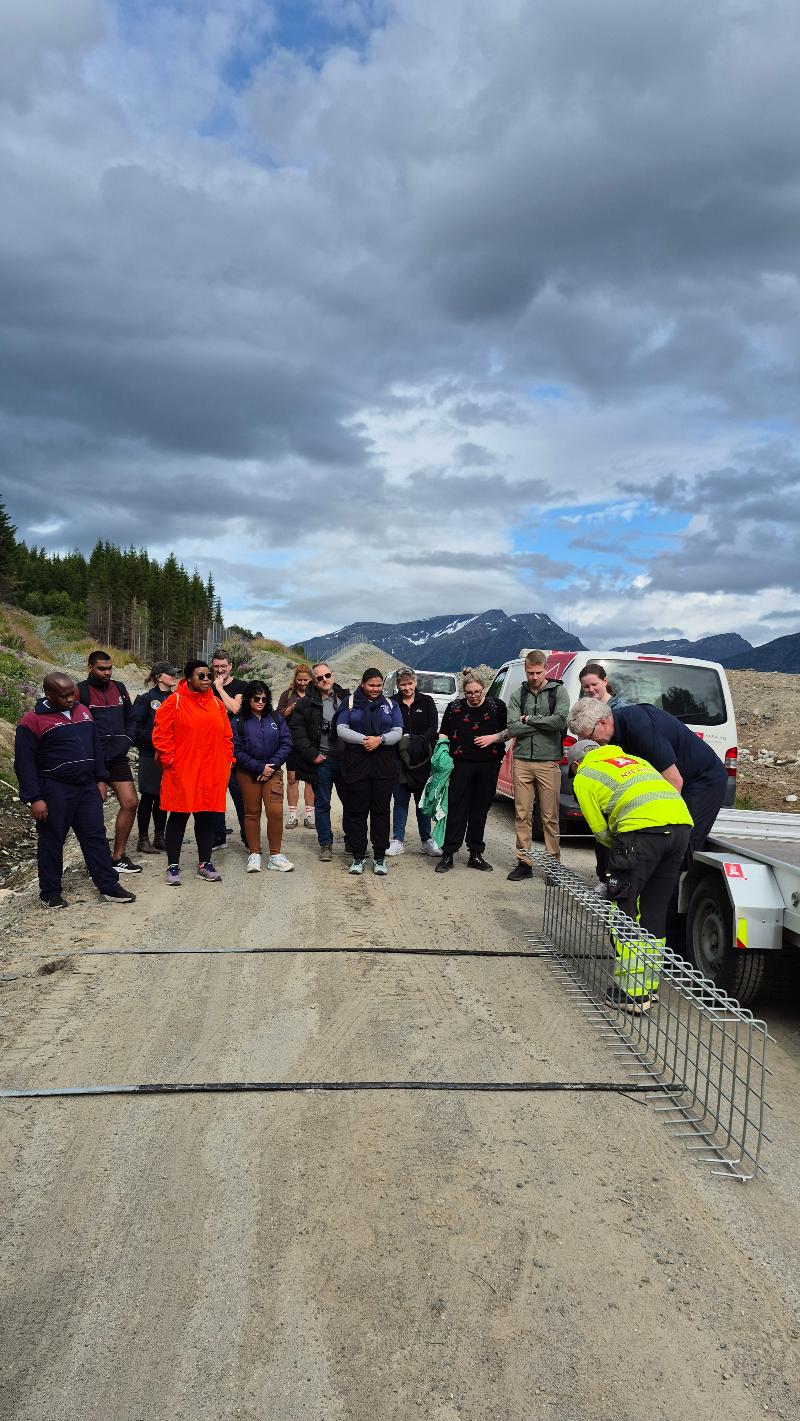
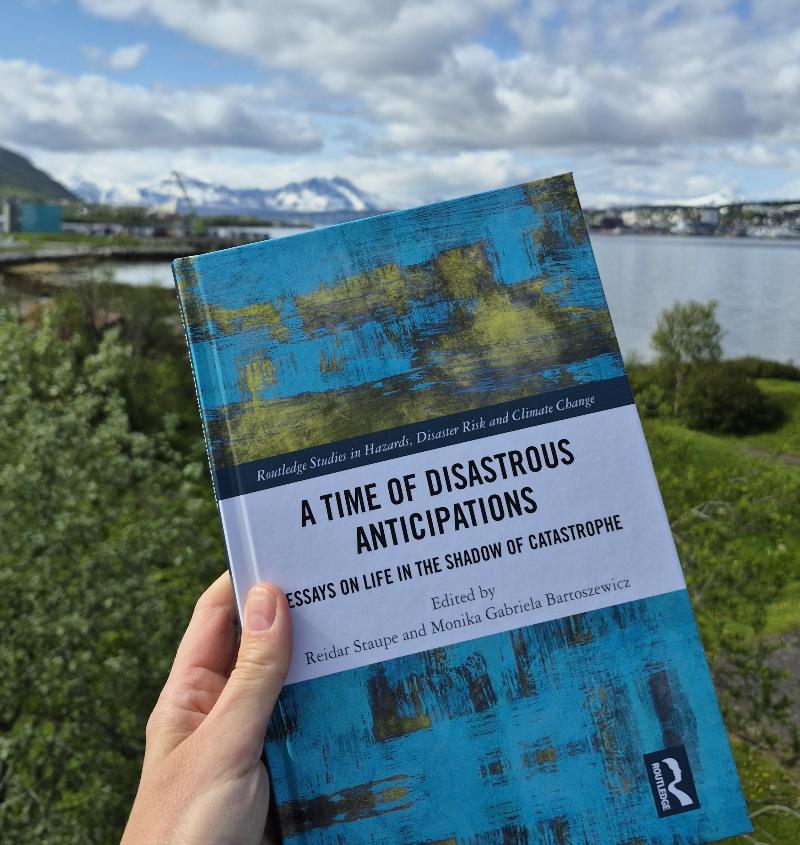
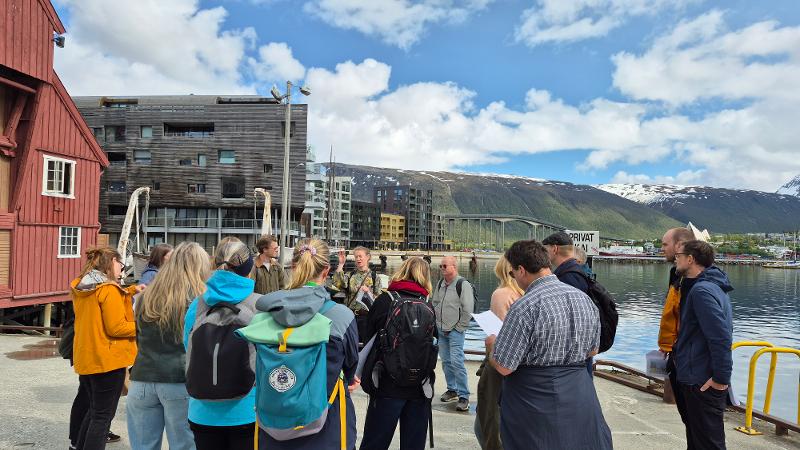
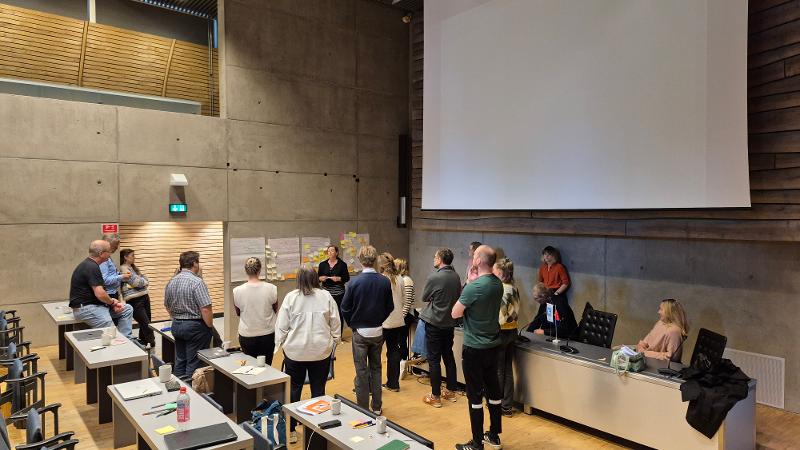




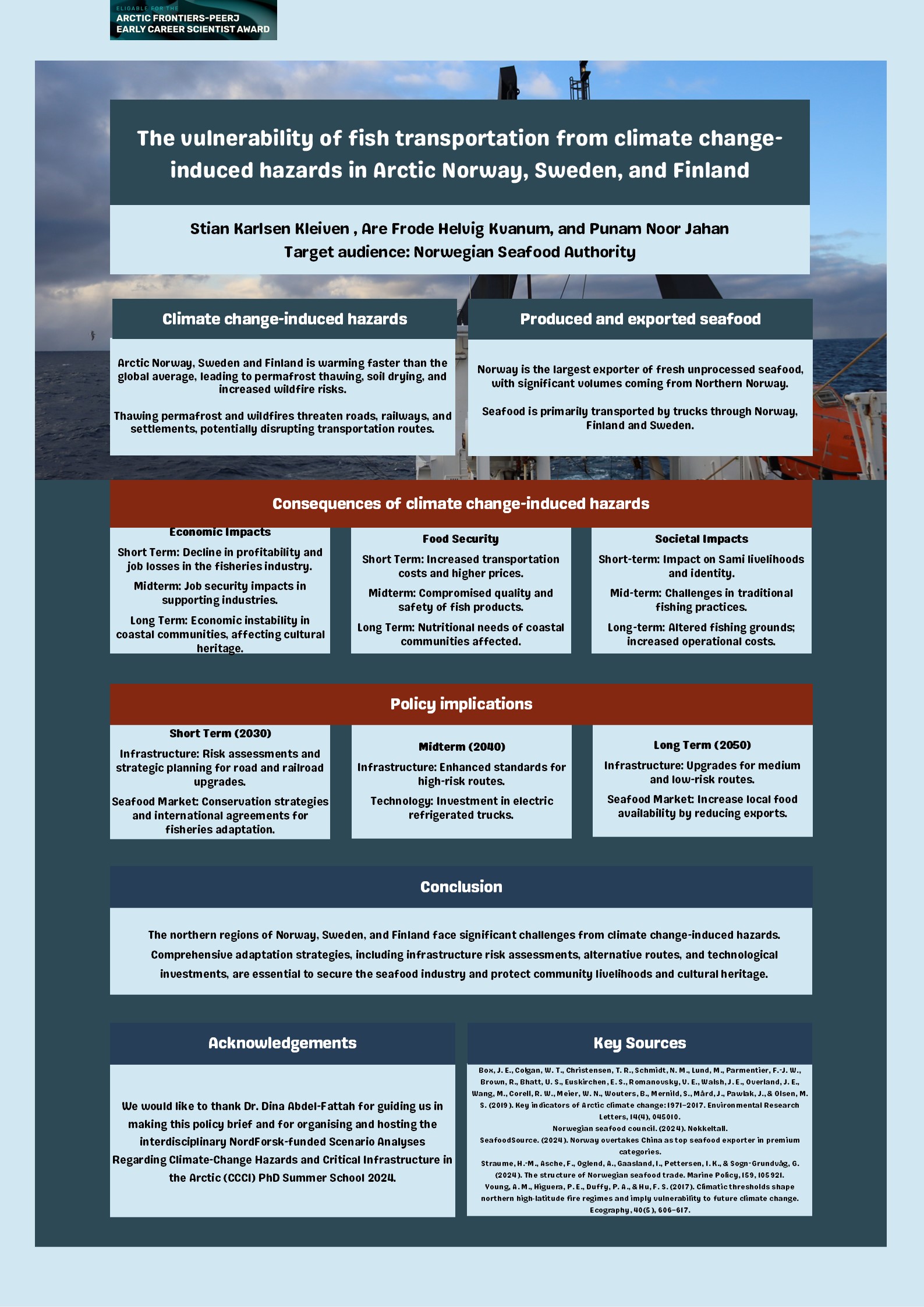
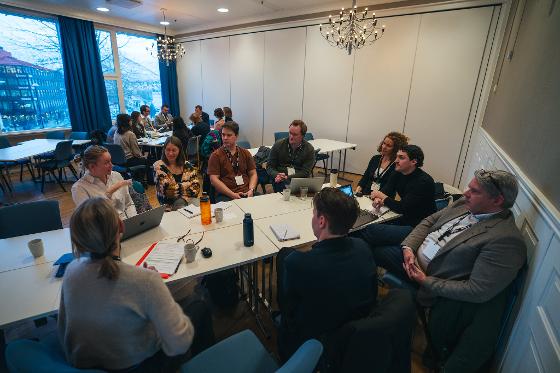
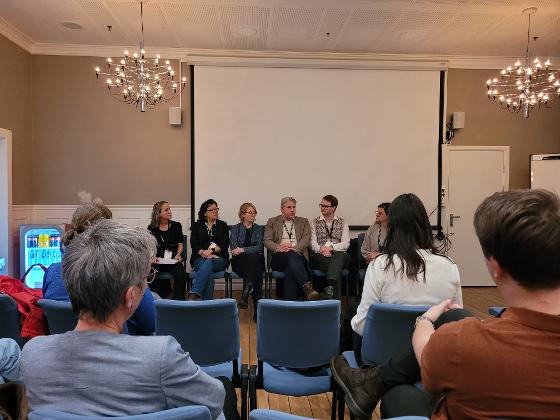
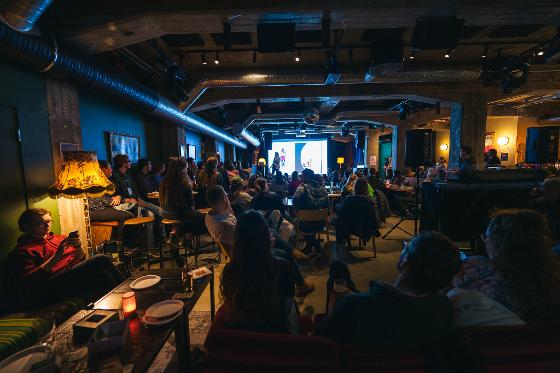
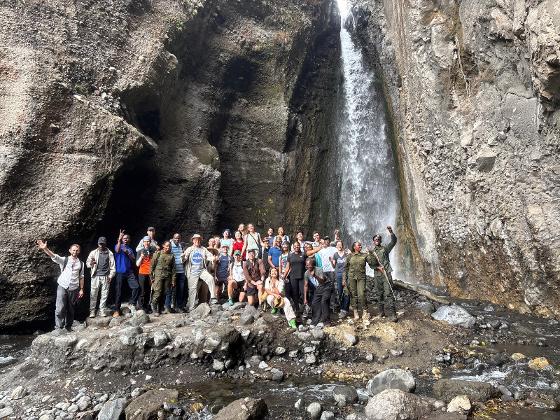
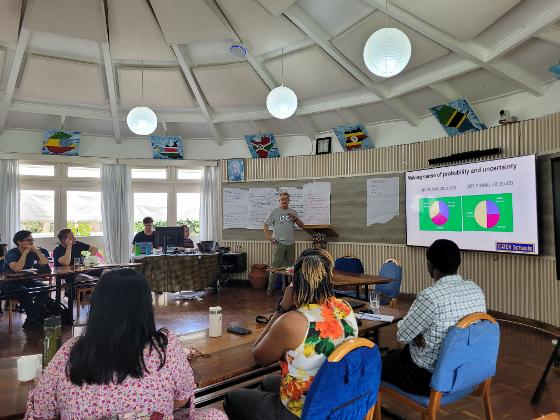
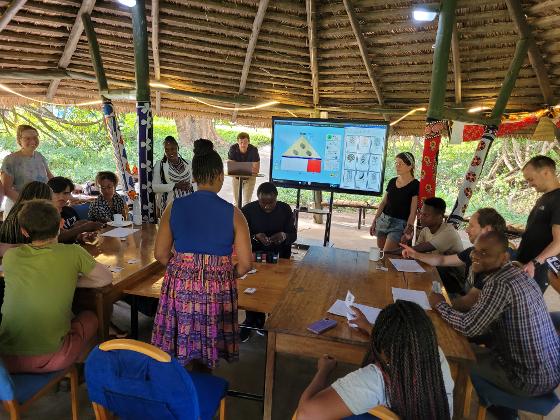
.jpg)
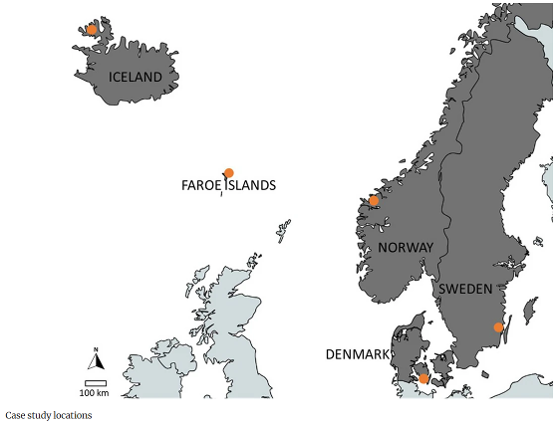

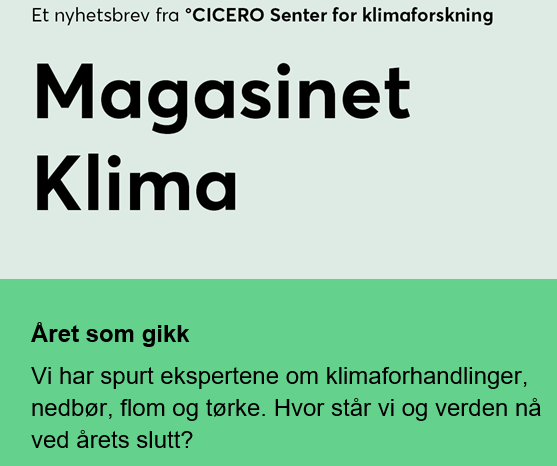


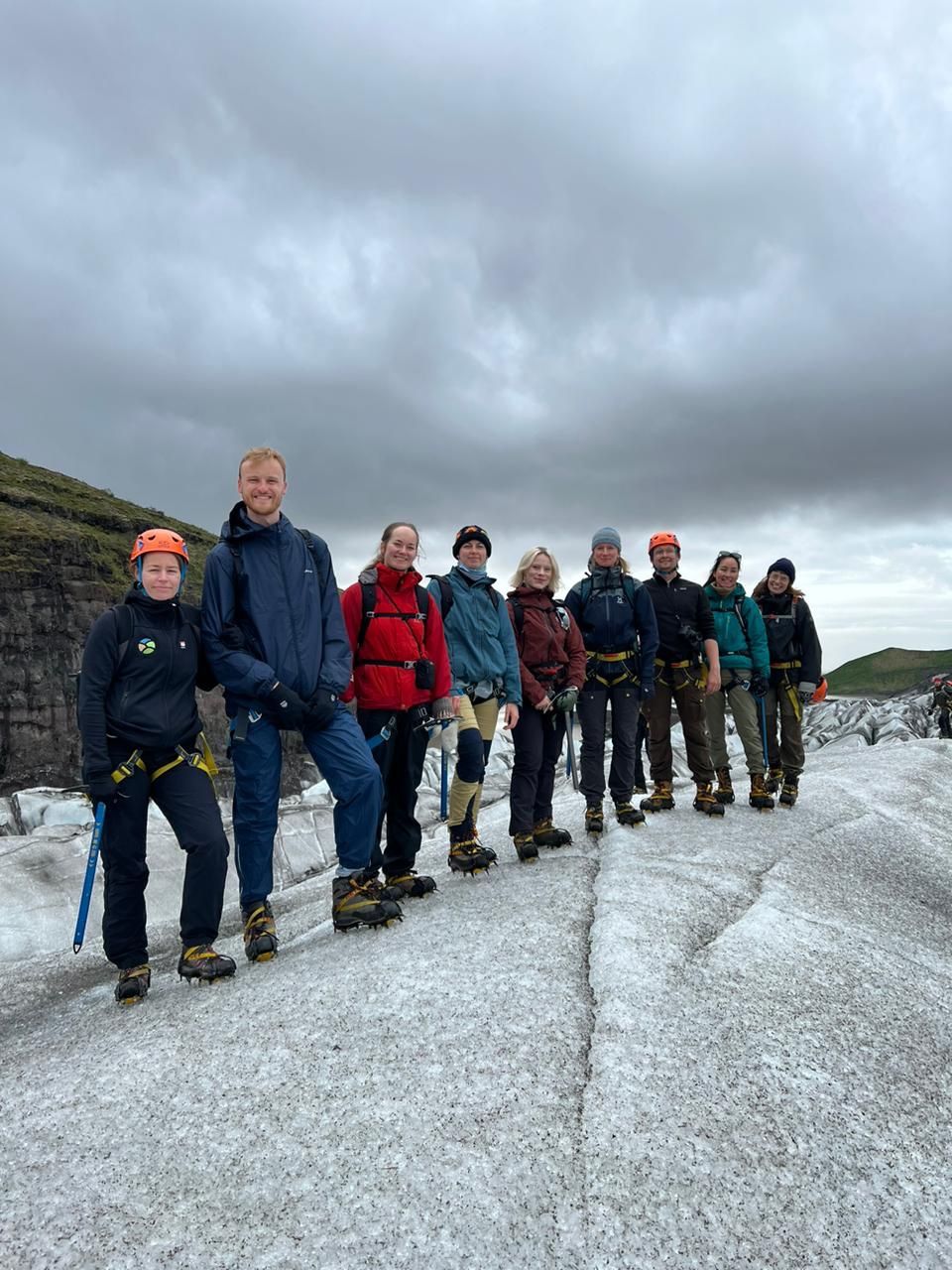



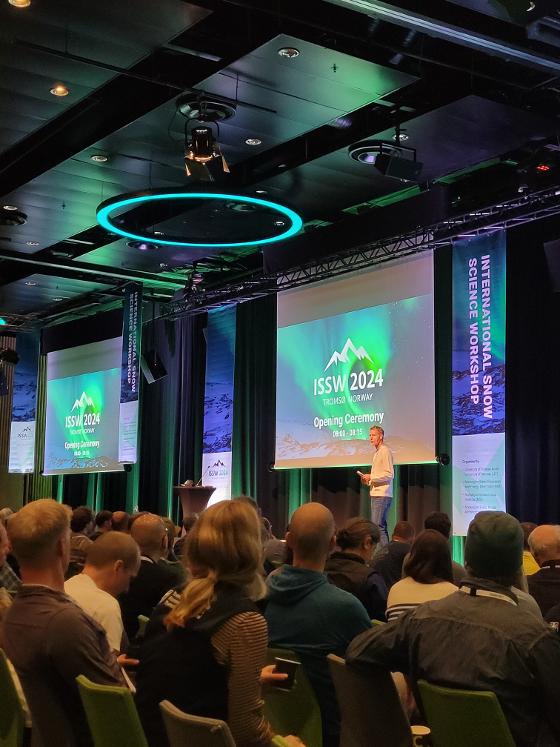

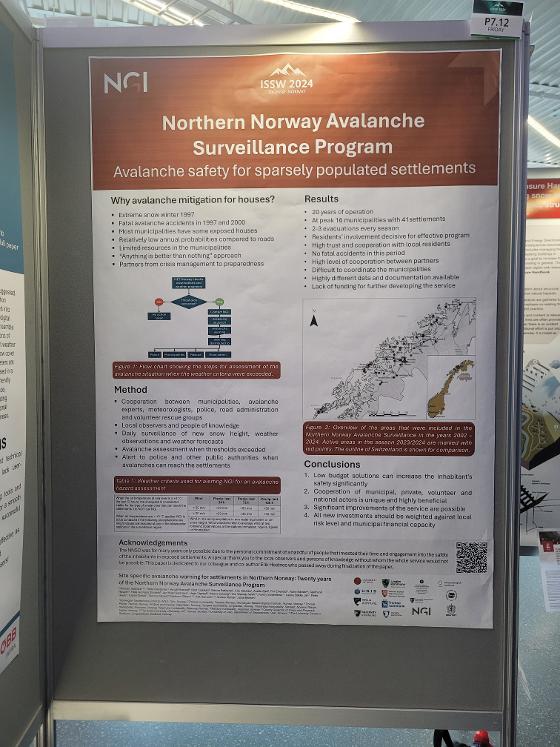
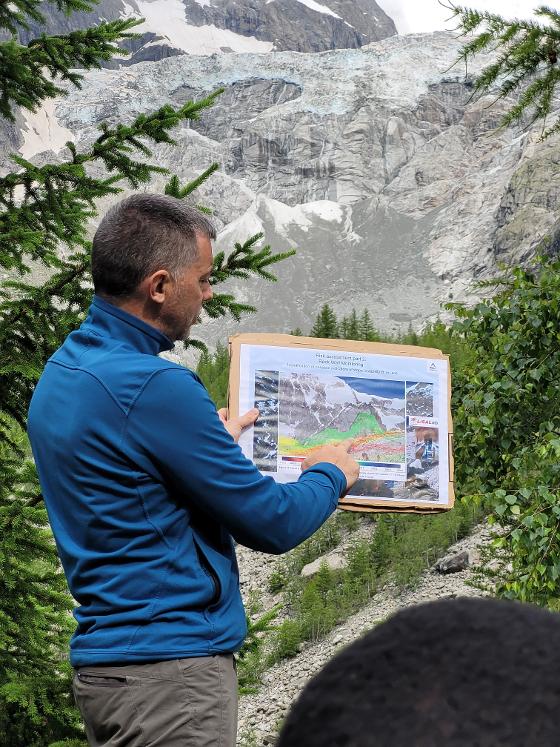
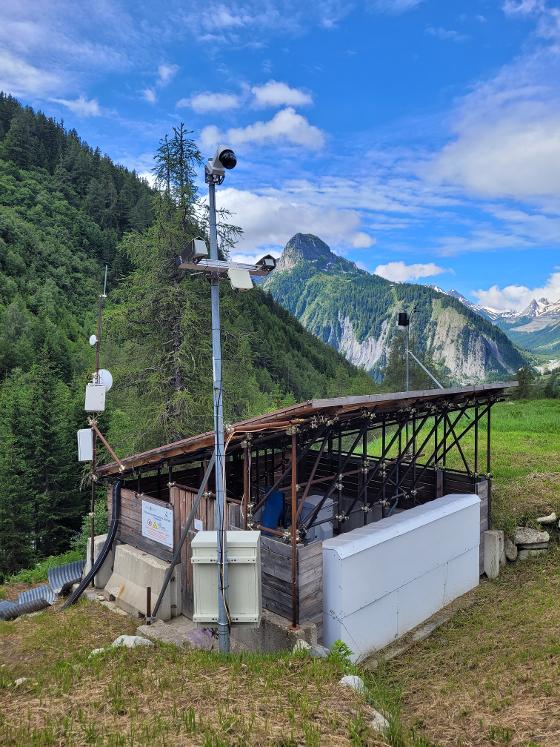
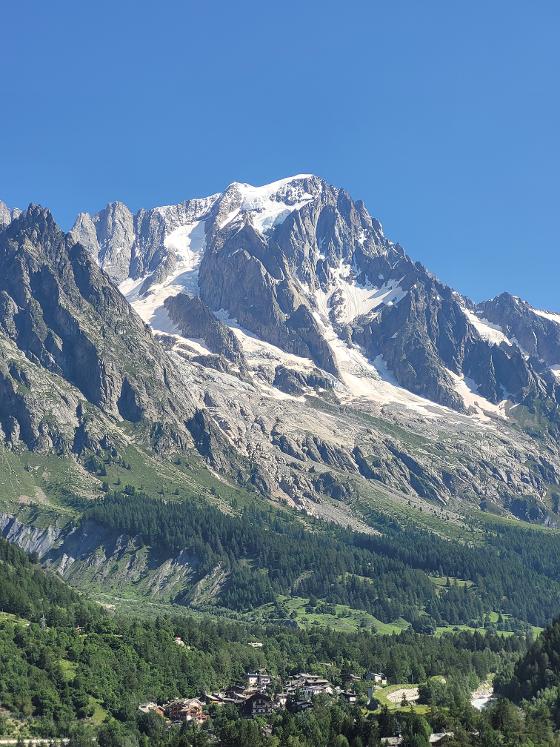

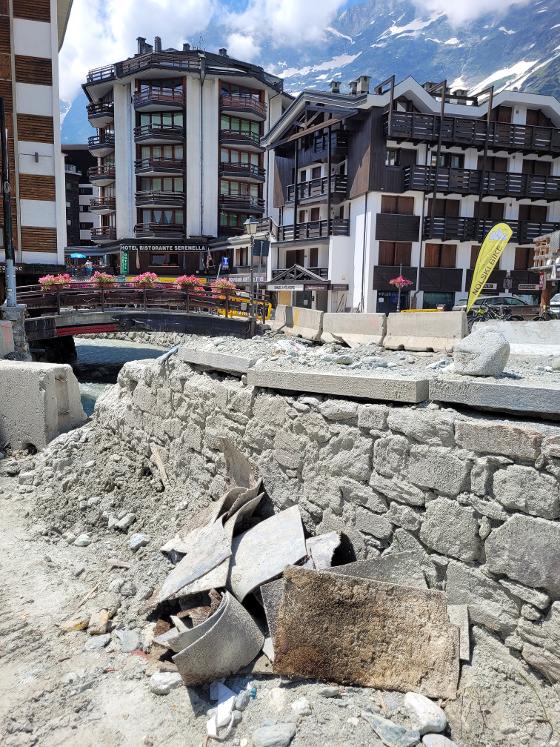
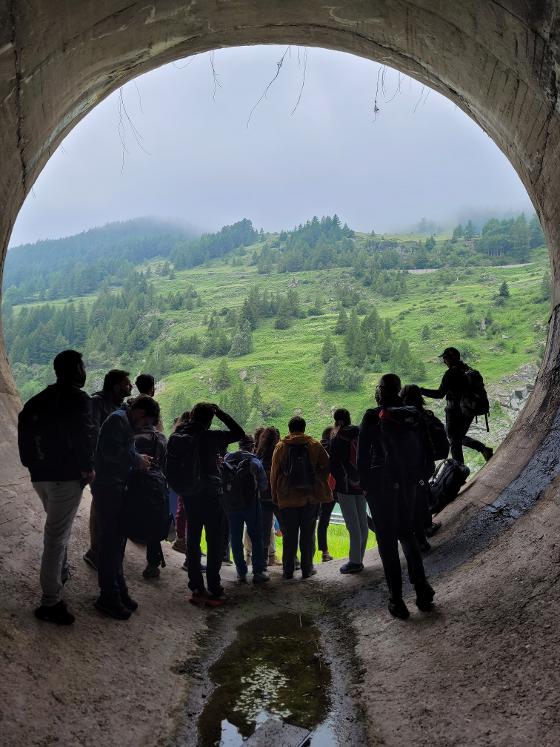
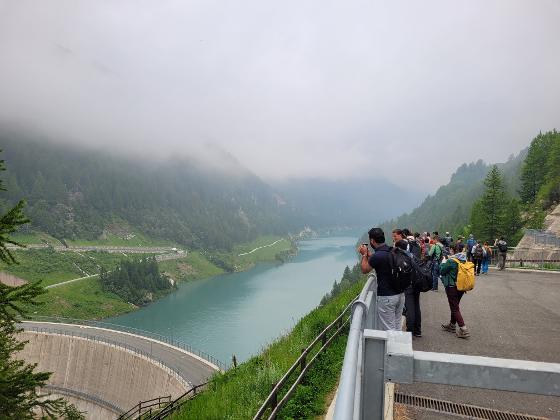
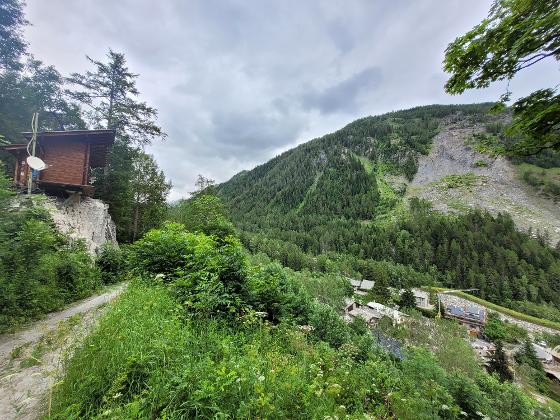
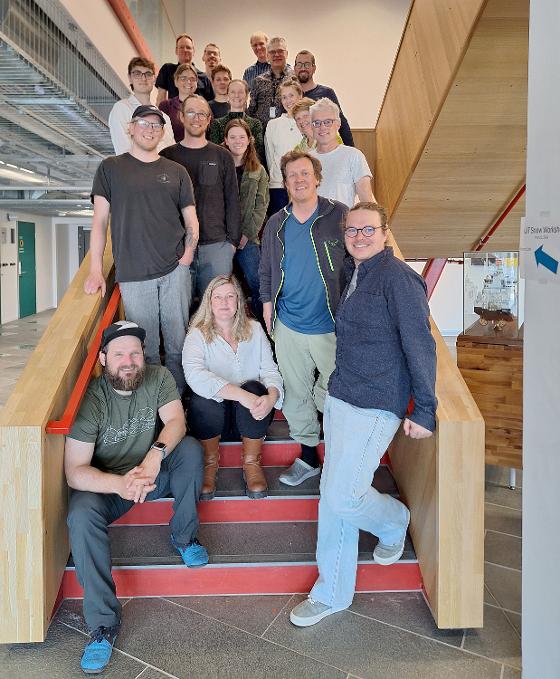


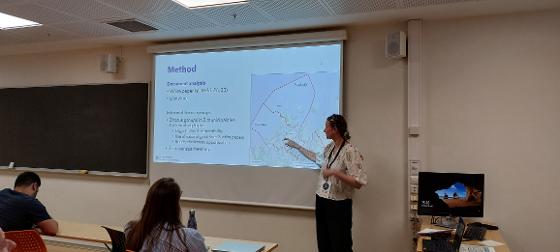
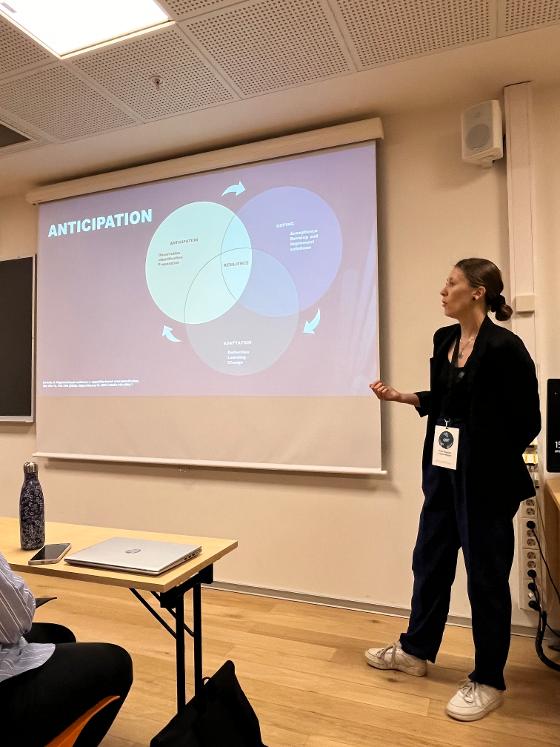
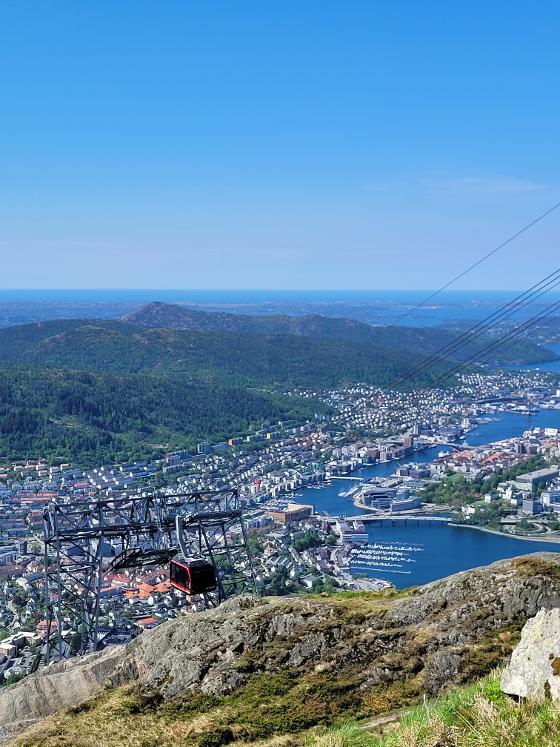


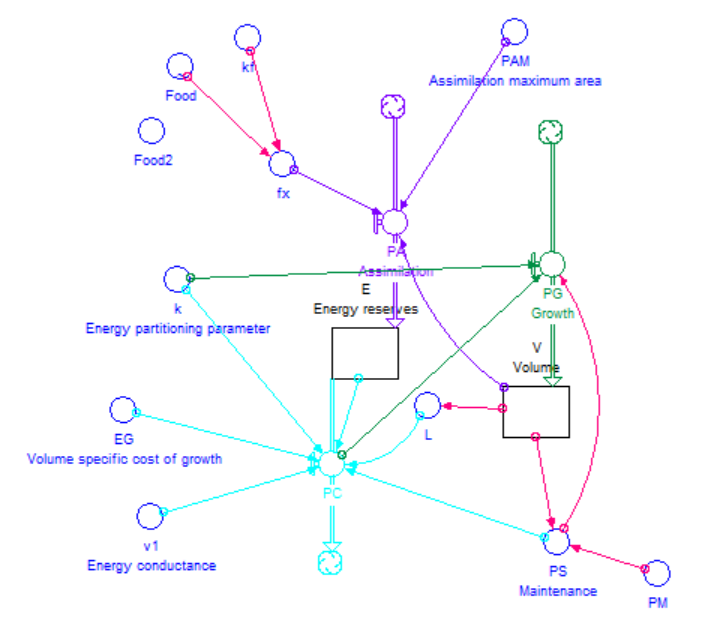
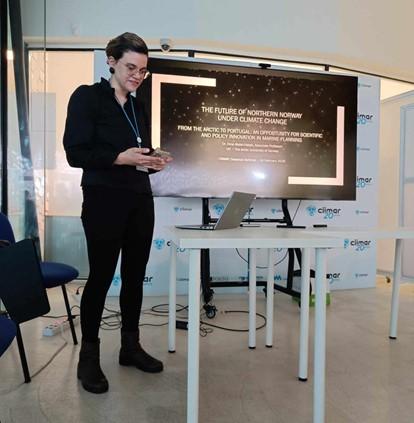
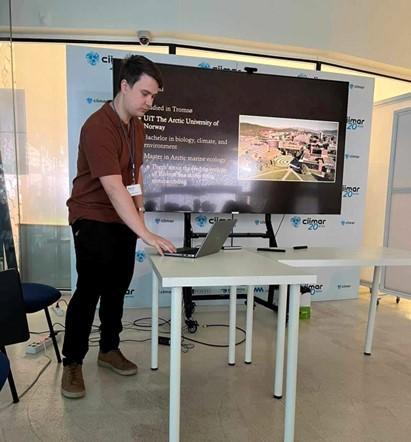
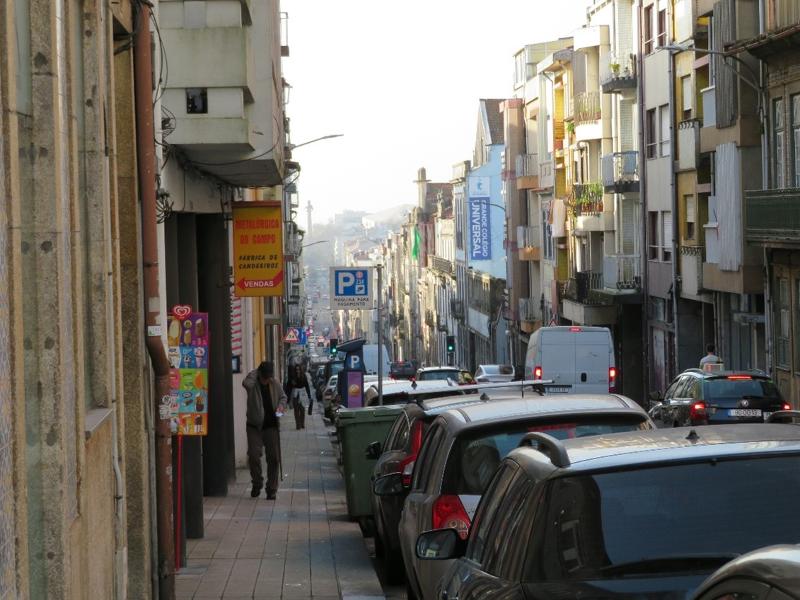
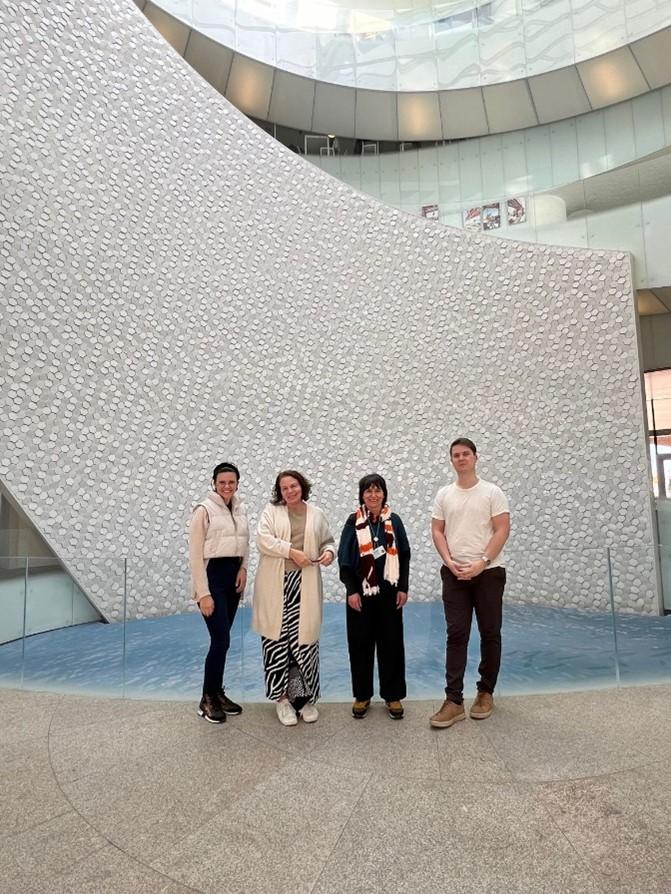
 From left to right, Leikny Bakke Lie, Laurien de Korte, Viktória Dénes, Richárd Viesz
From left to right, Leikny Bakke Lie, Laurien de Korte, Viktória Dénes, Richárd Viesz 